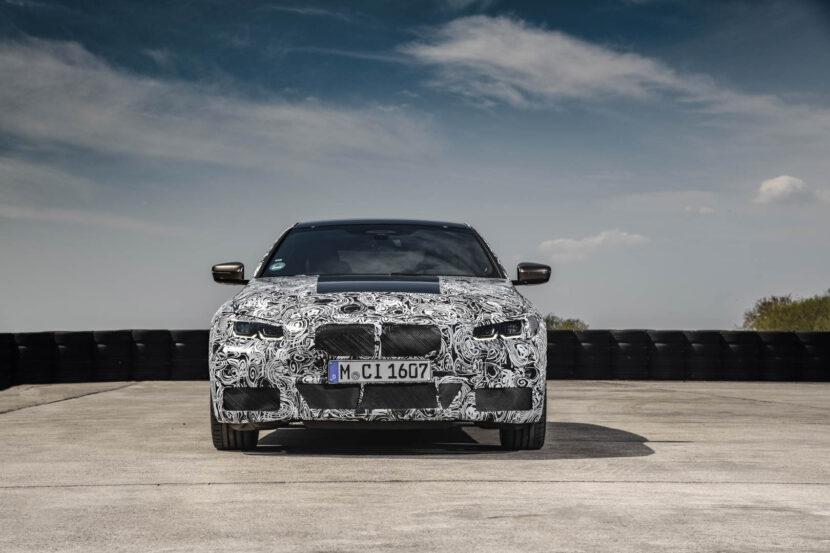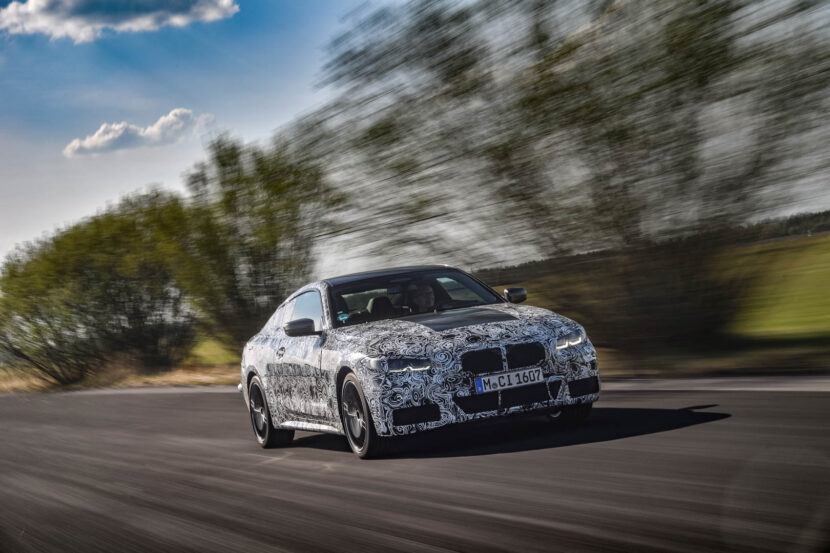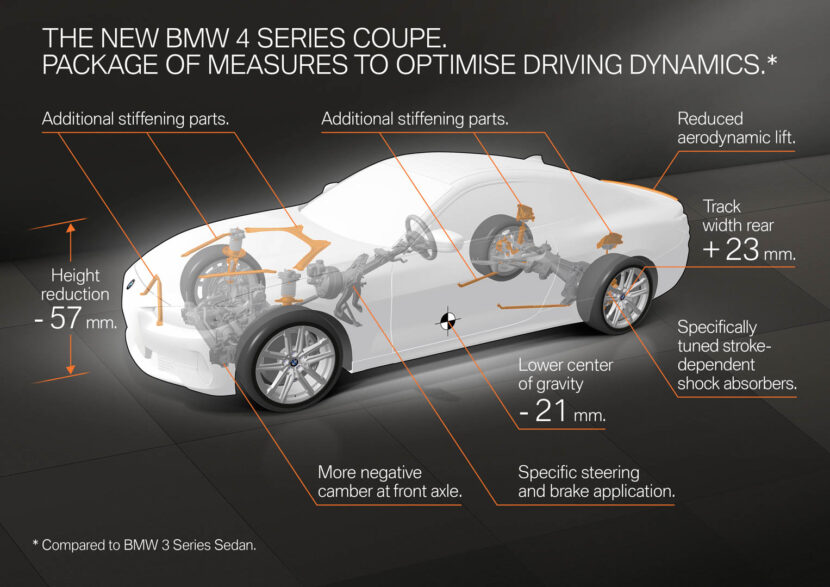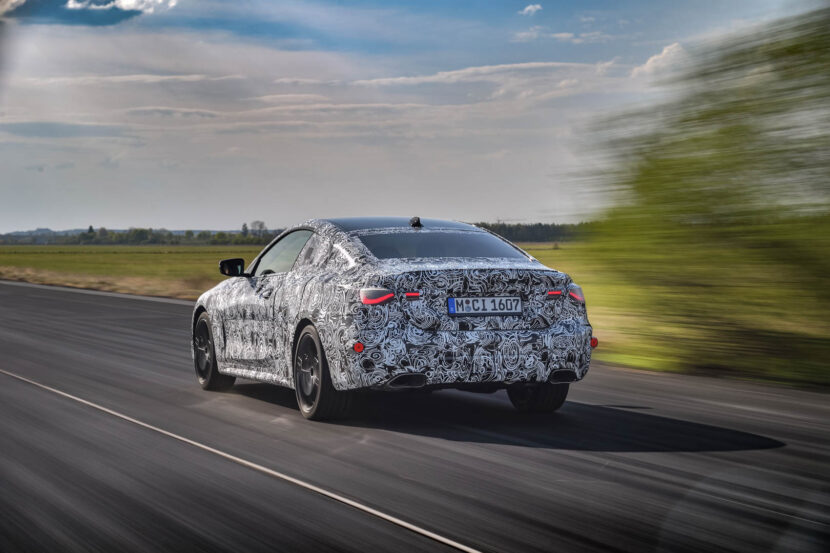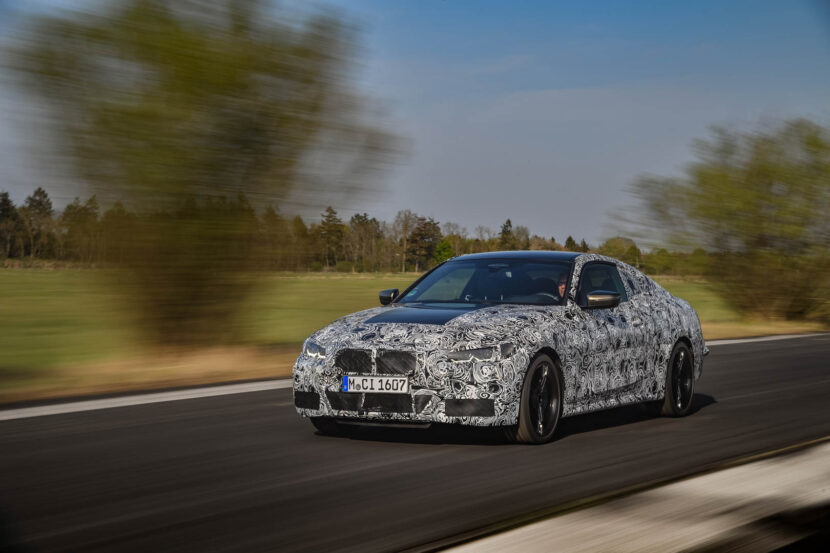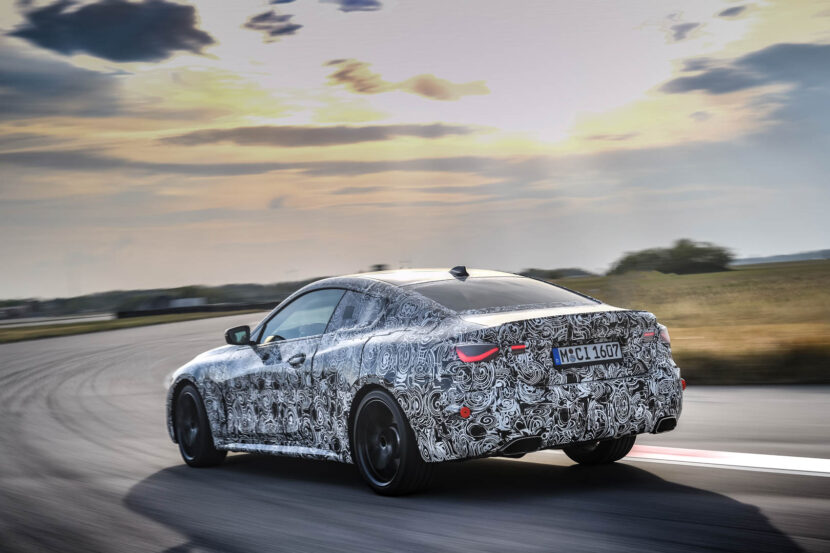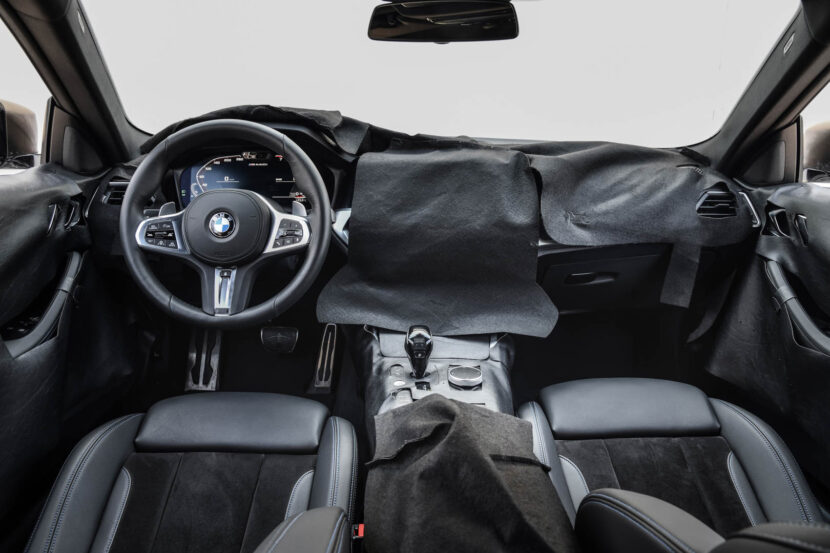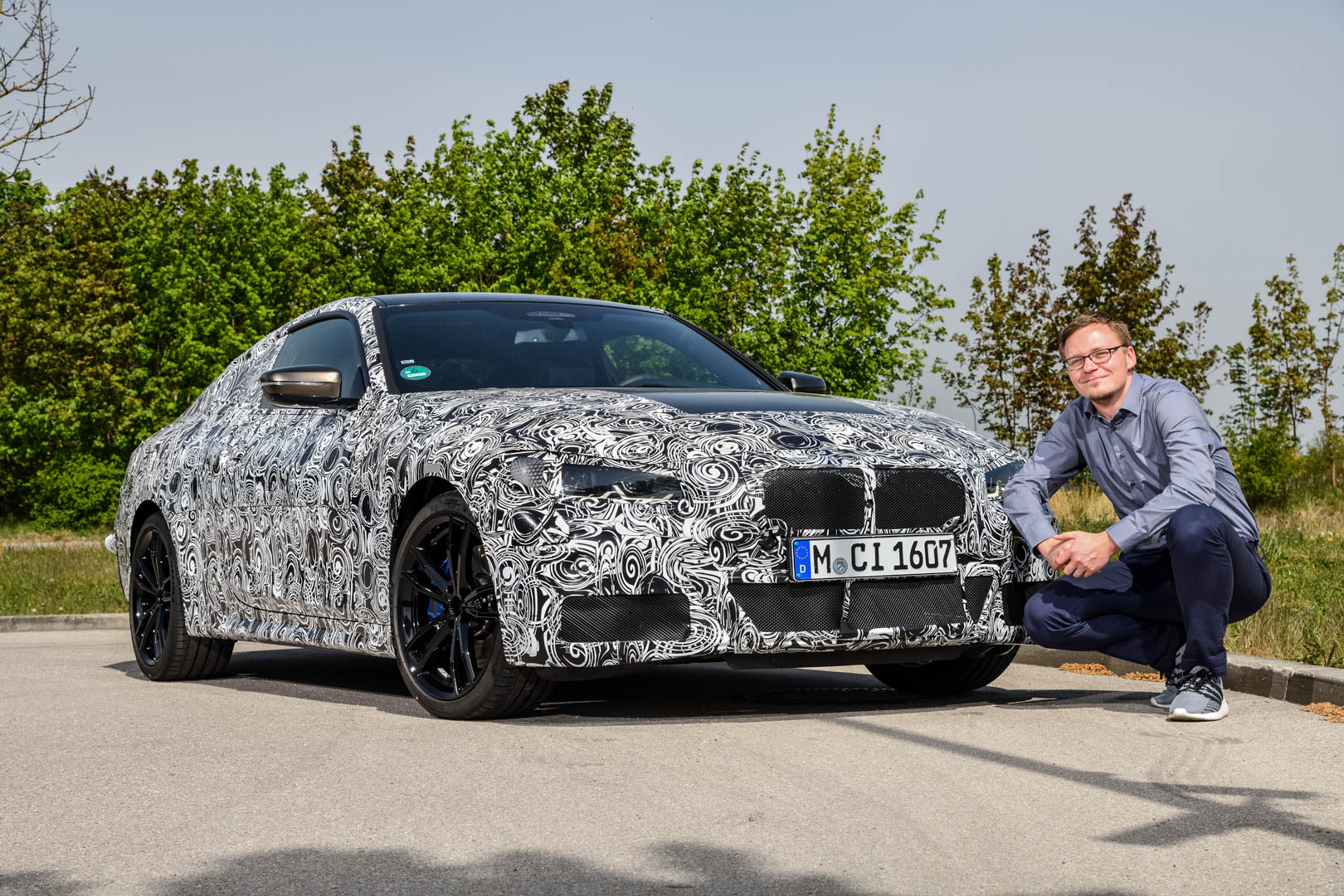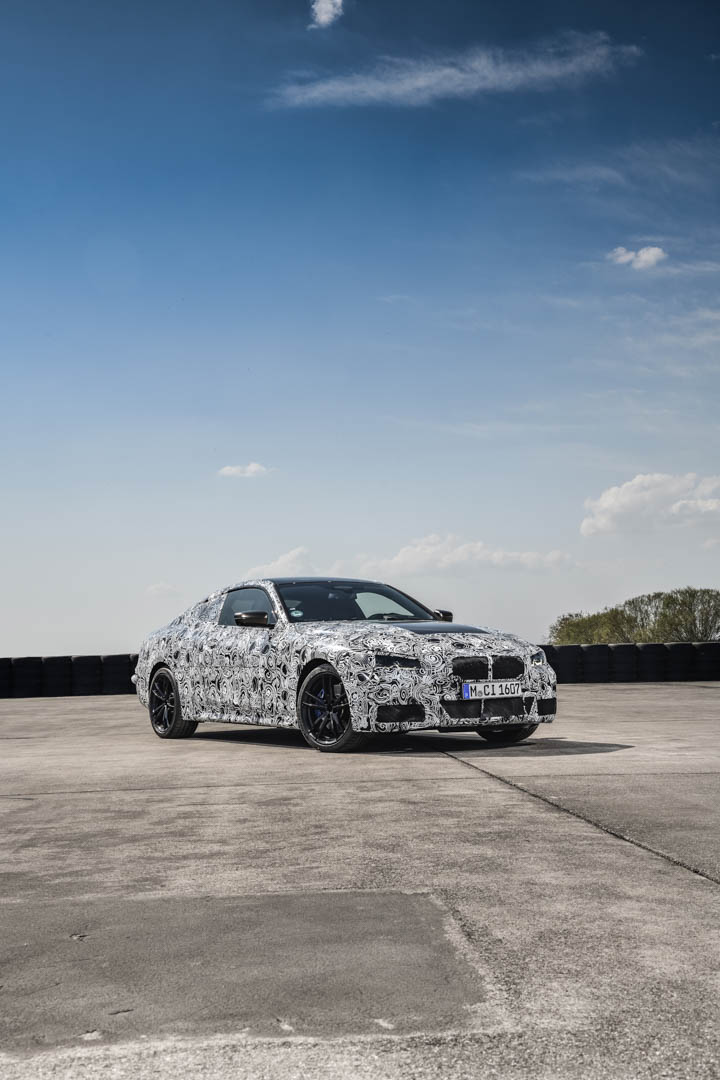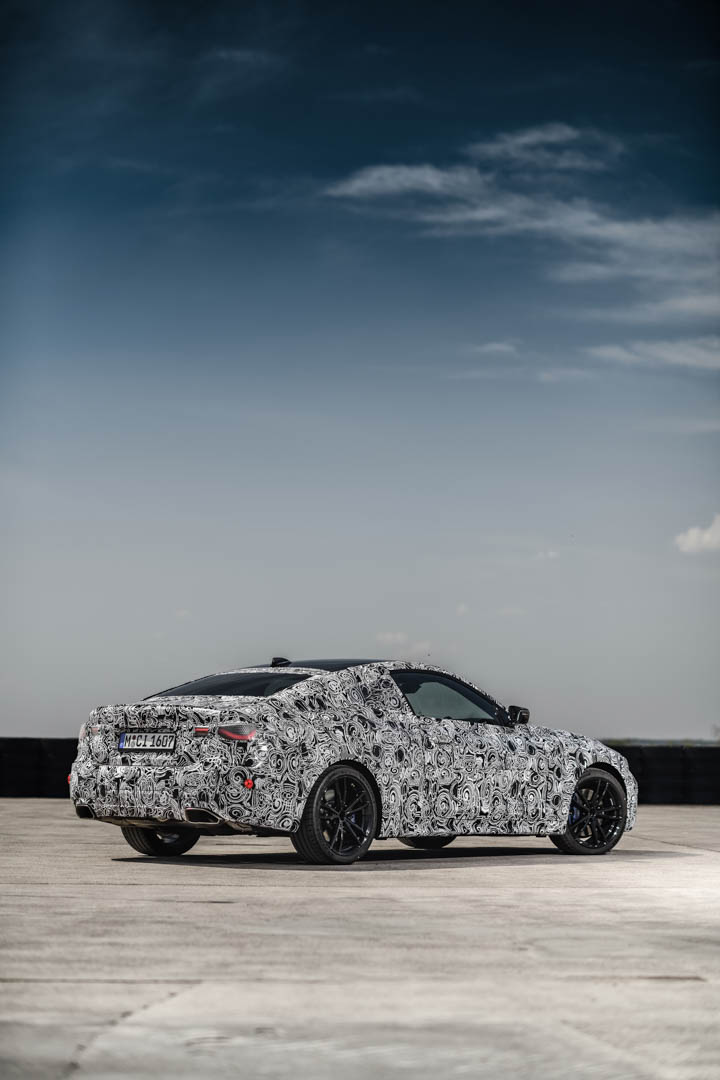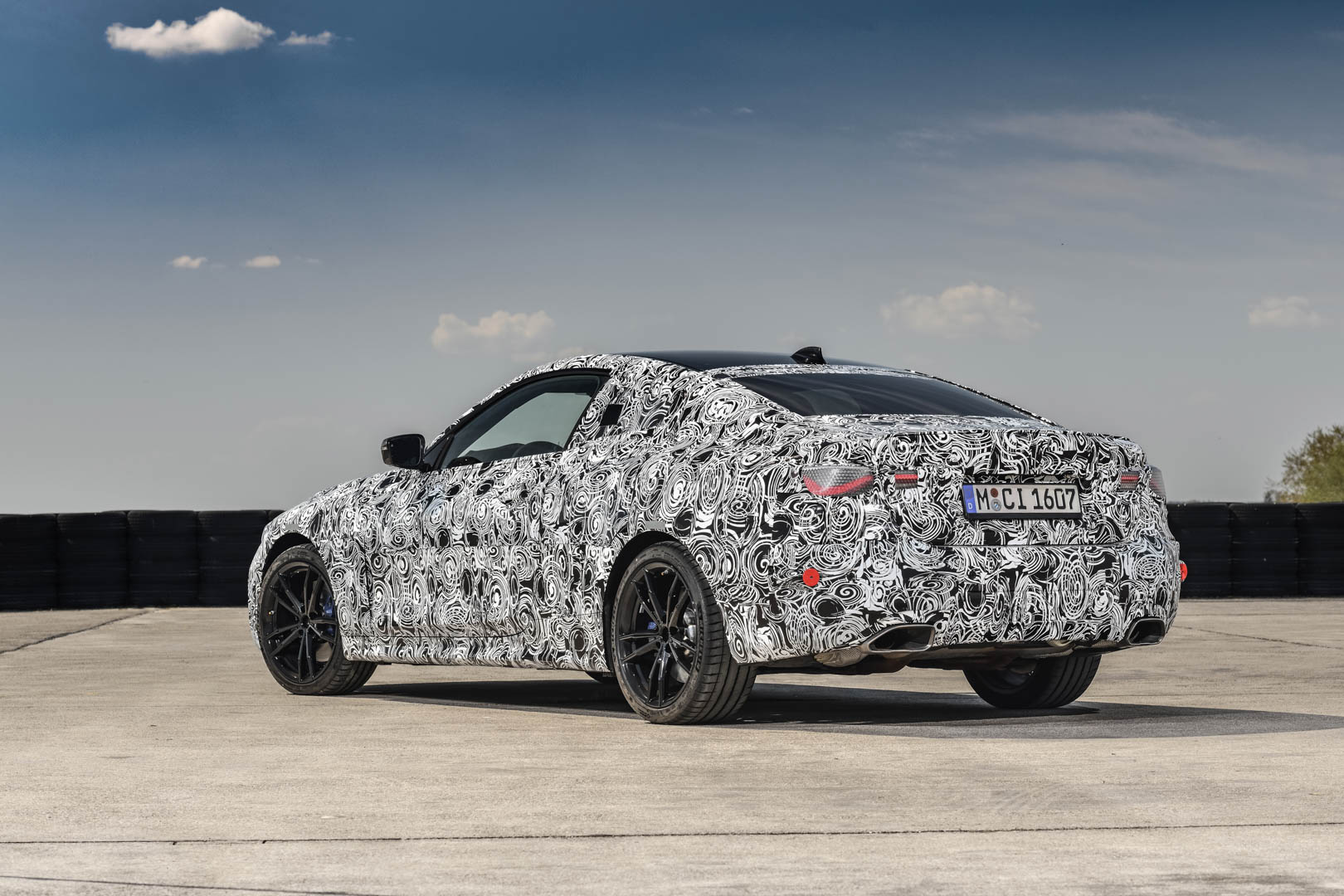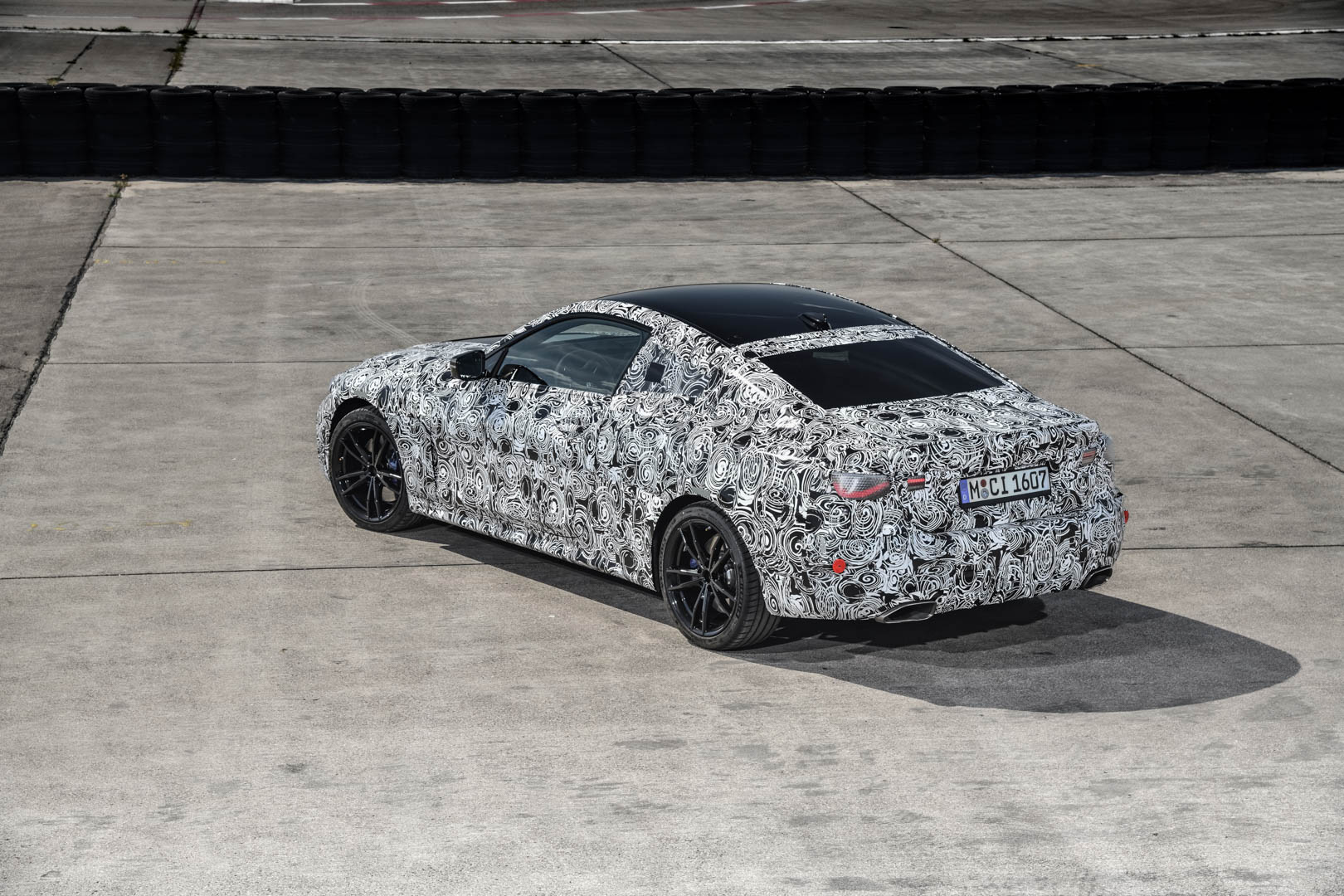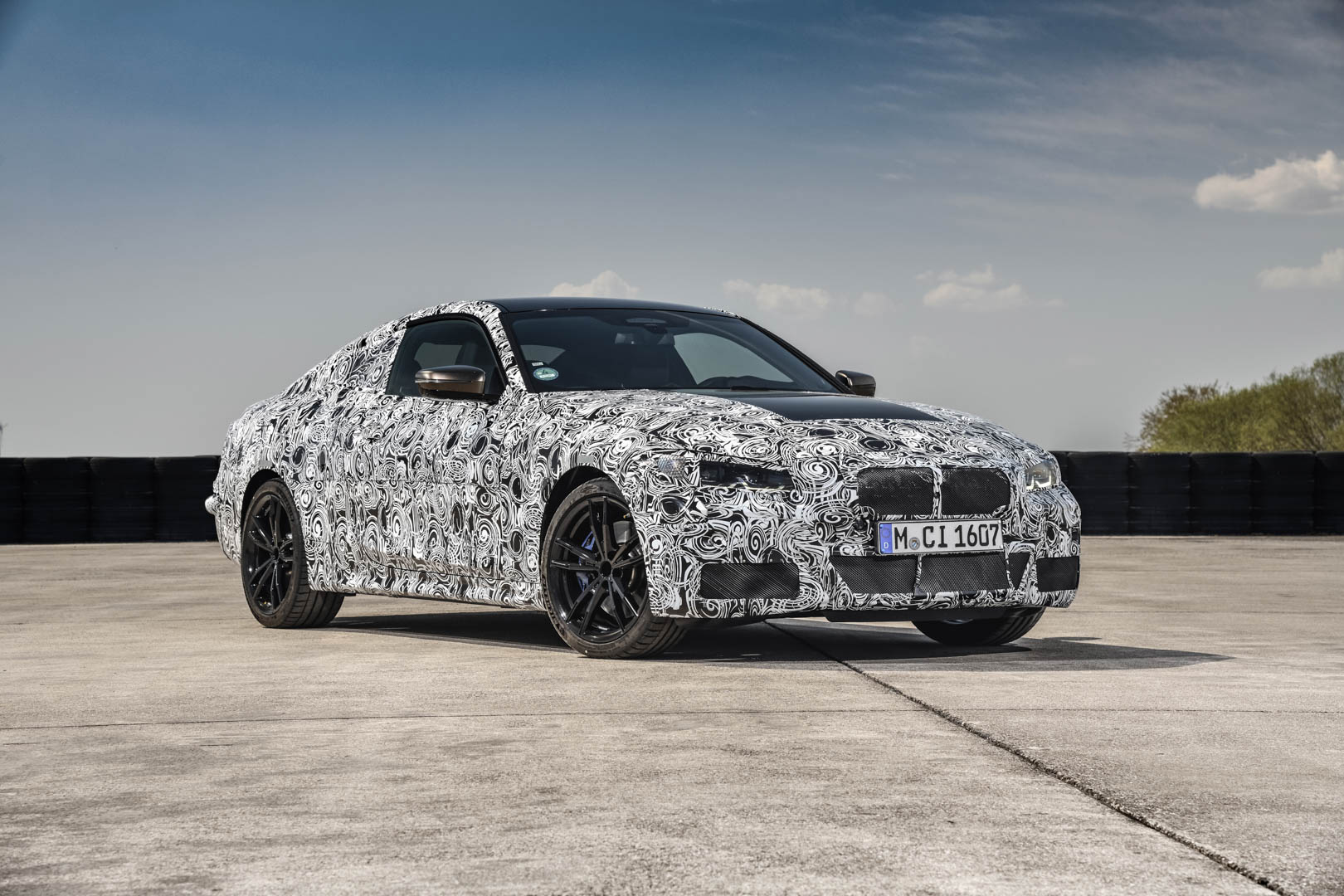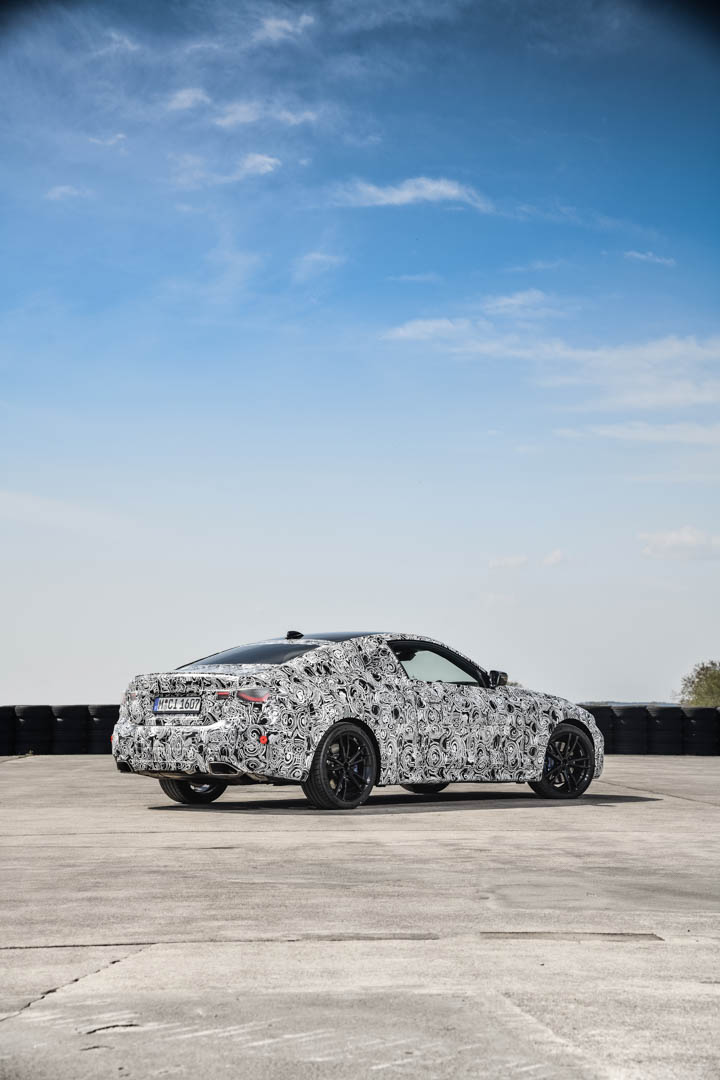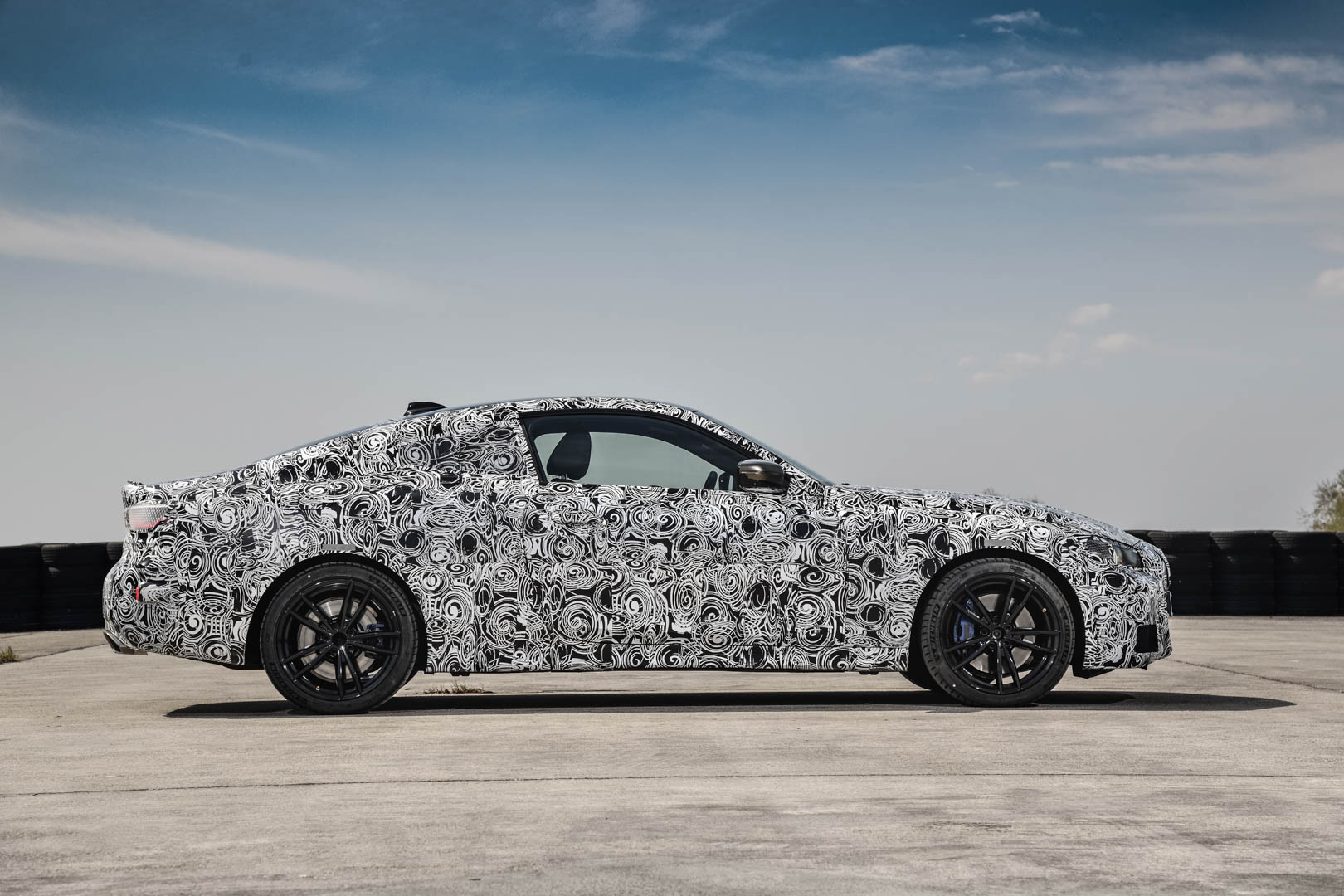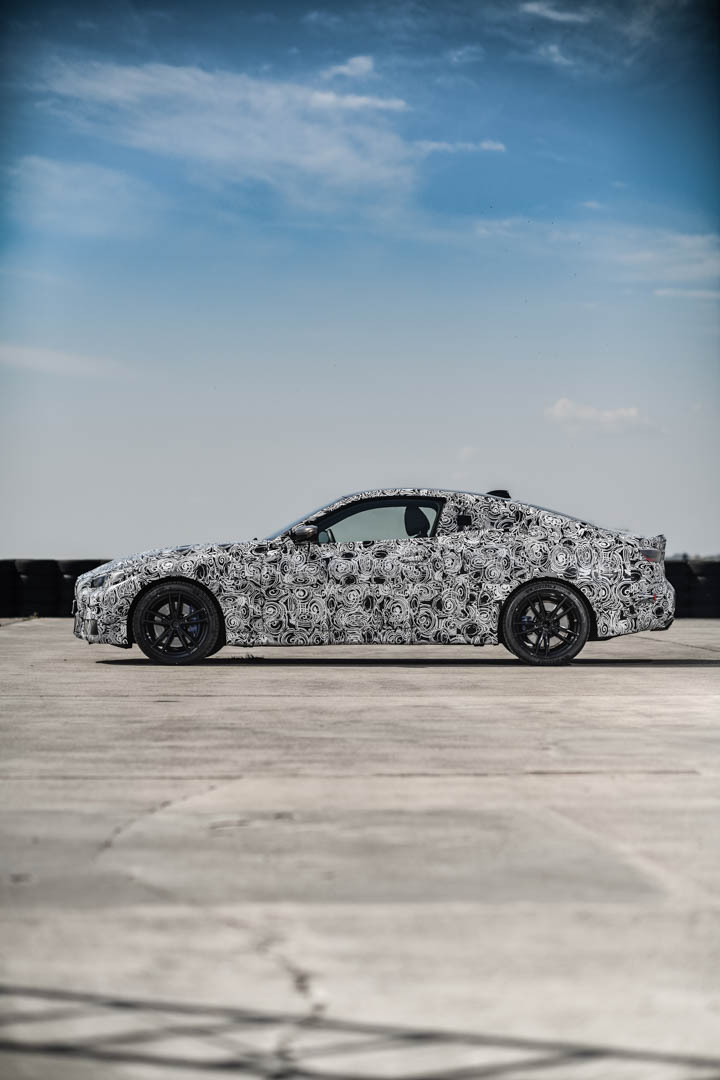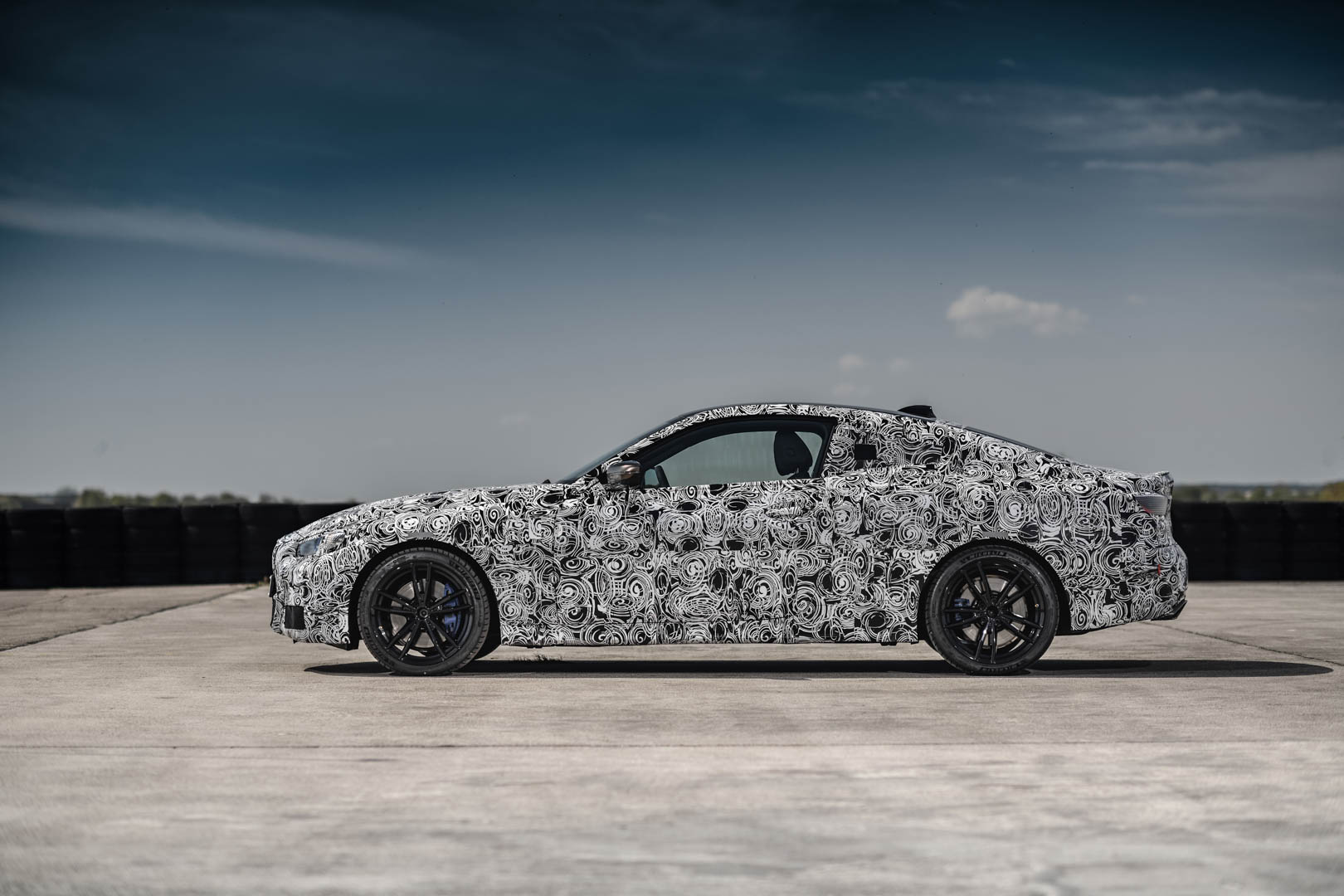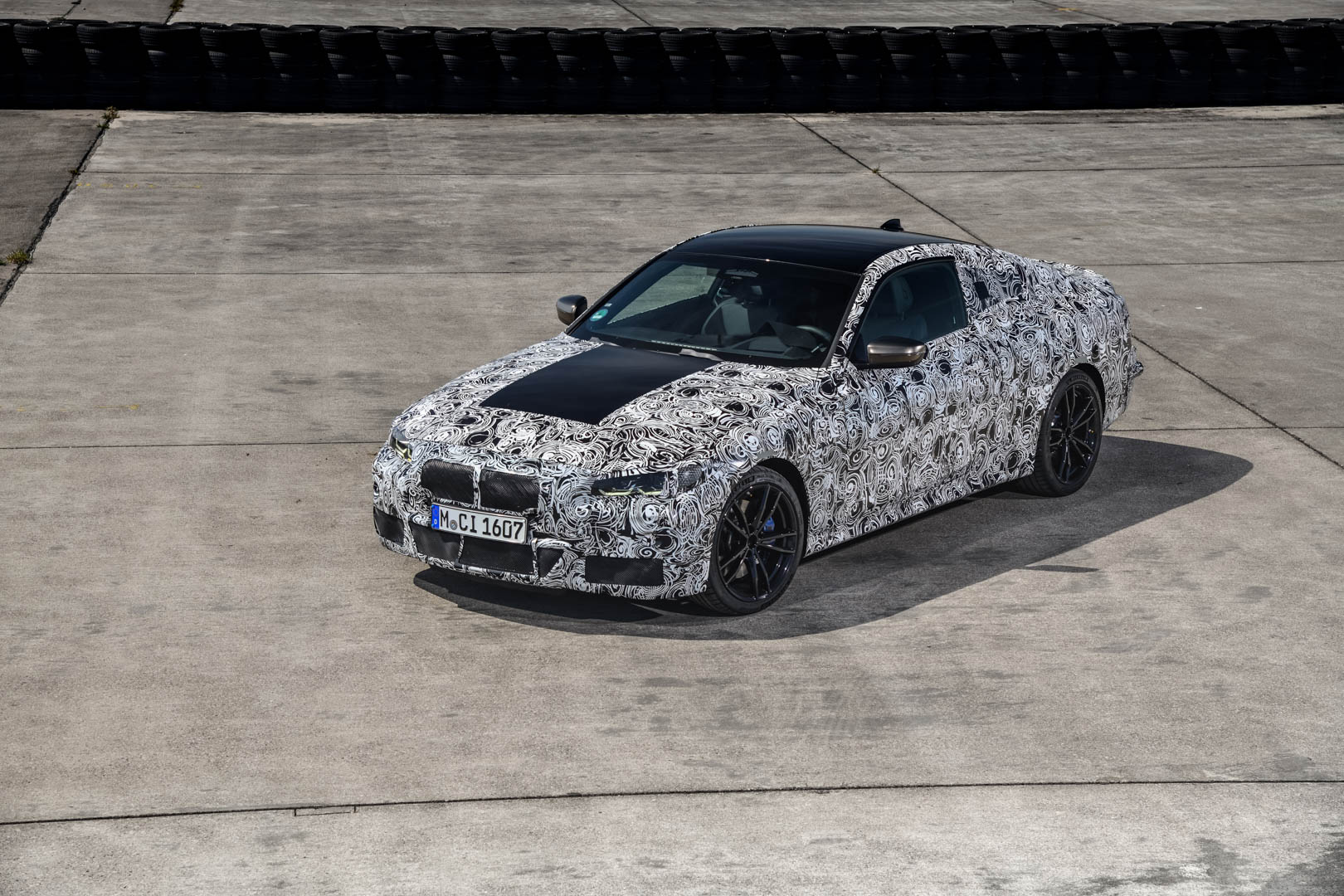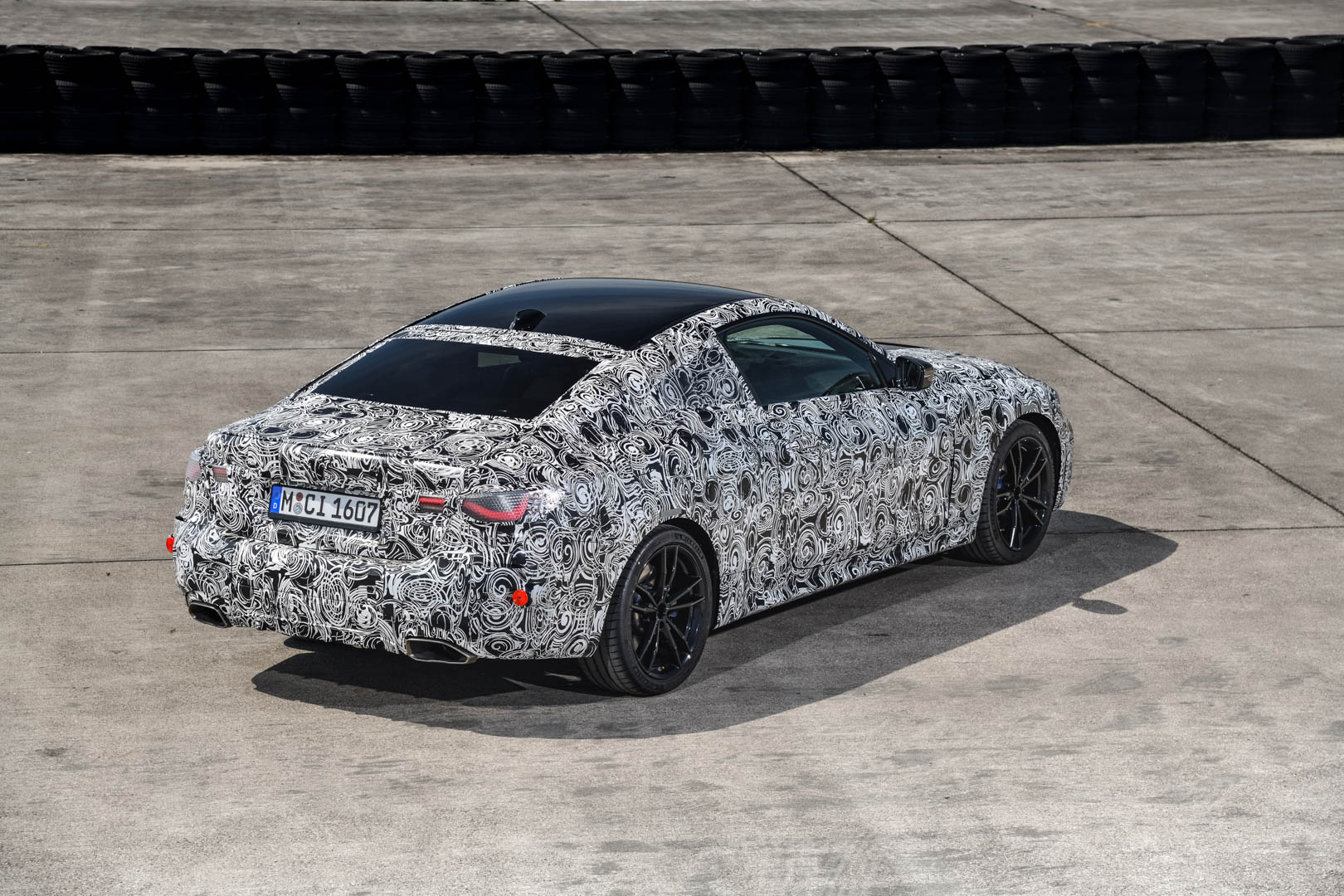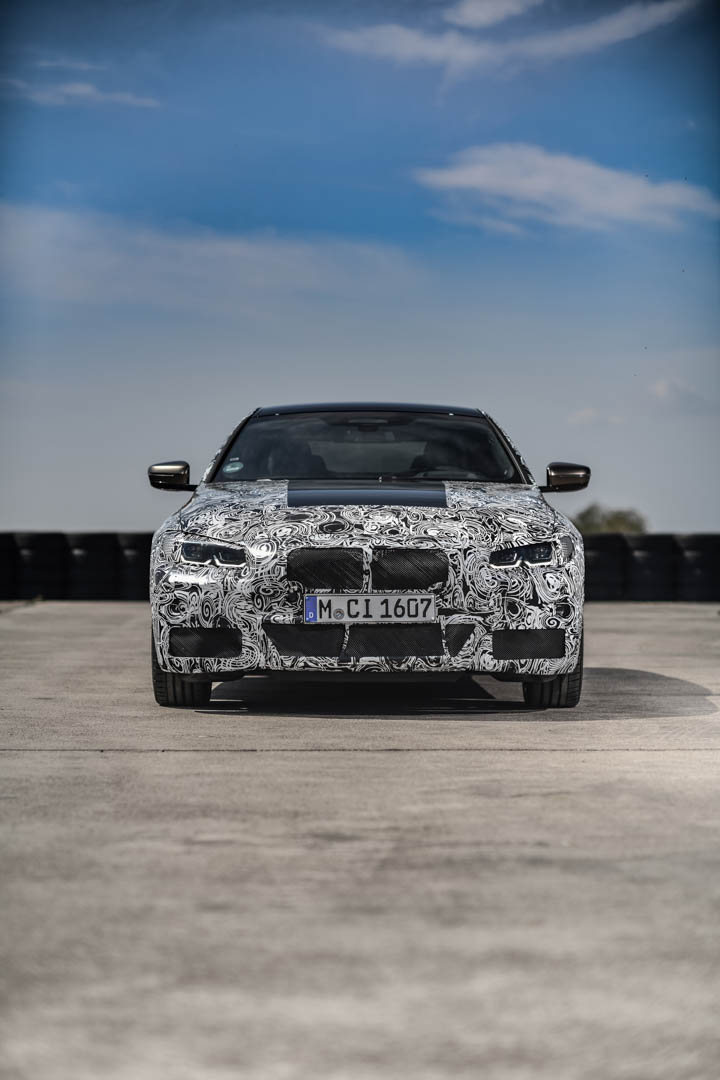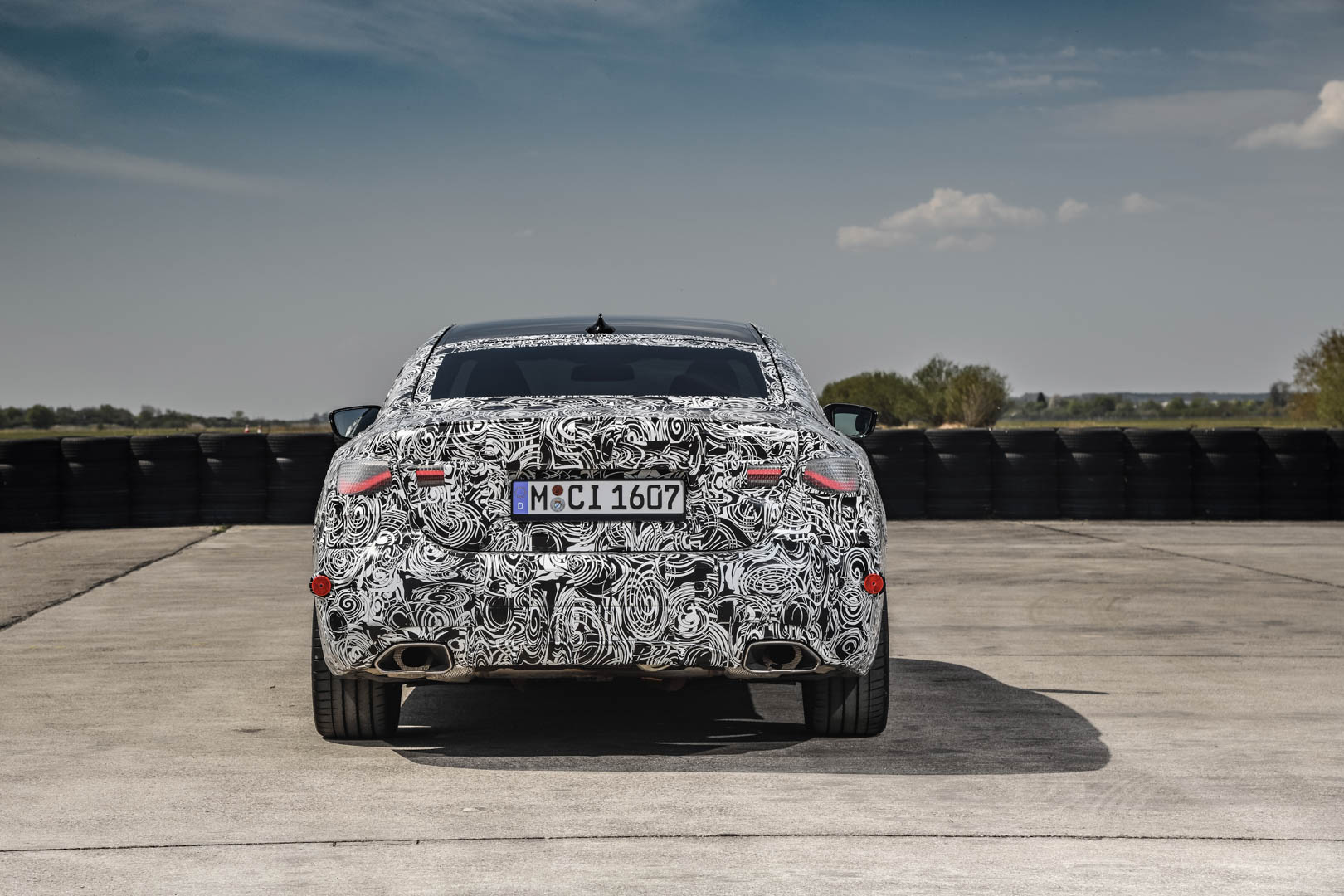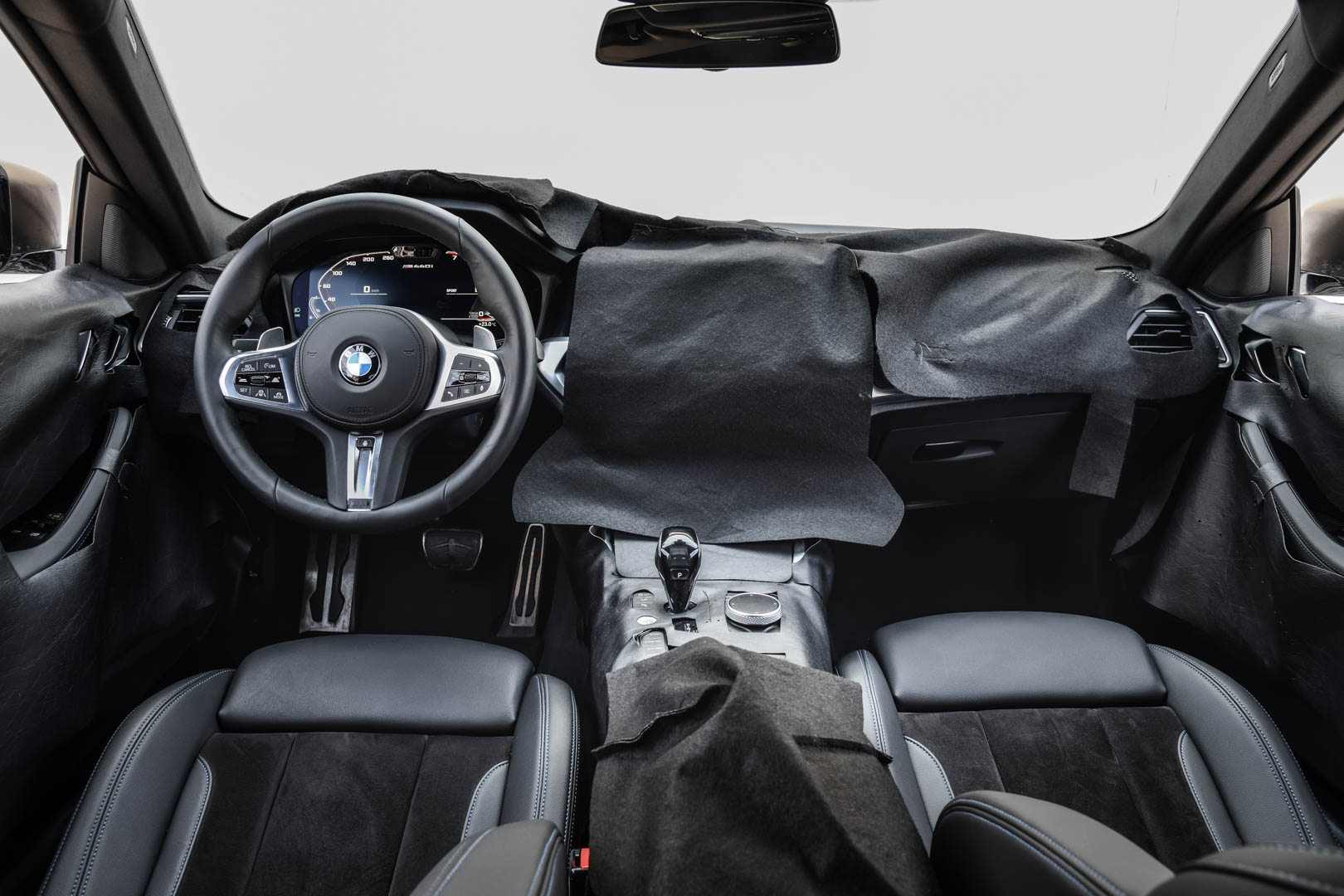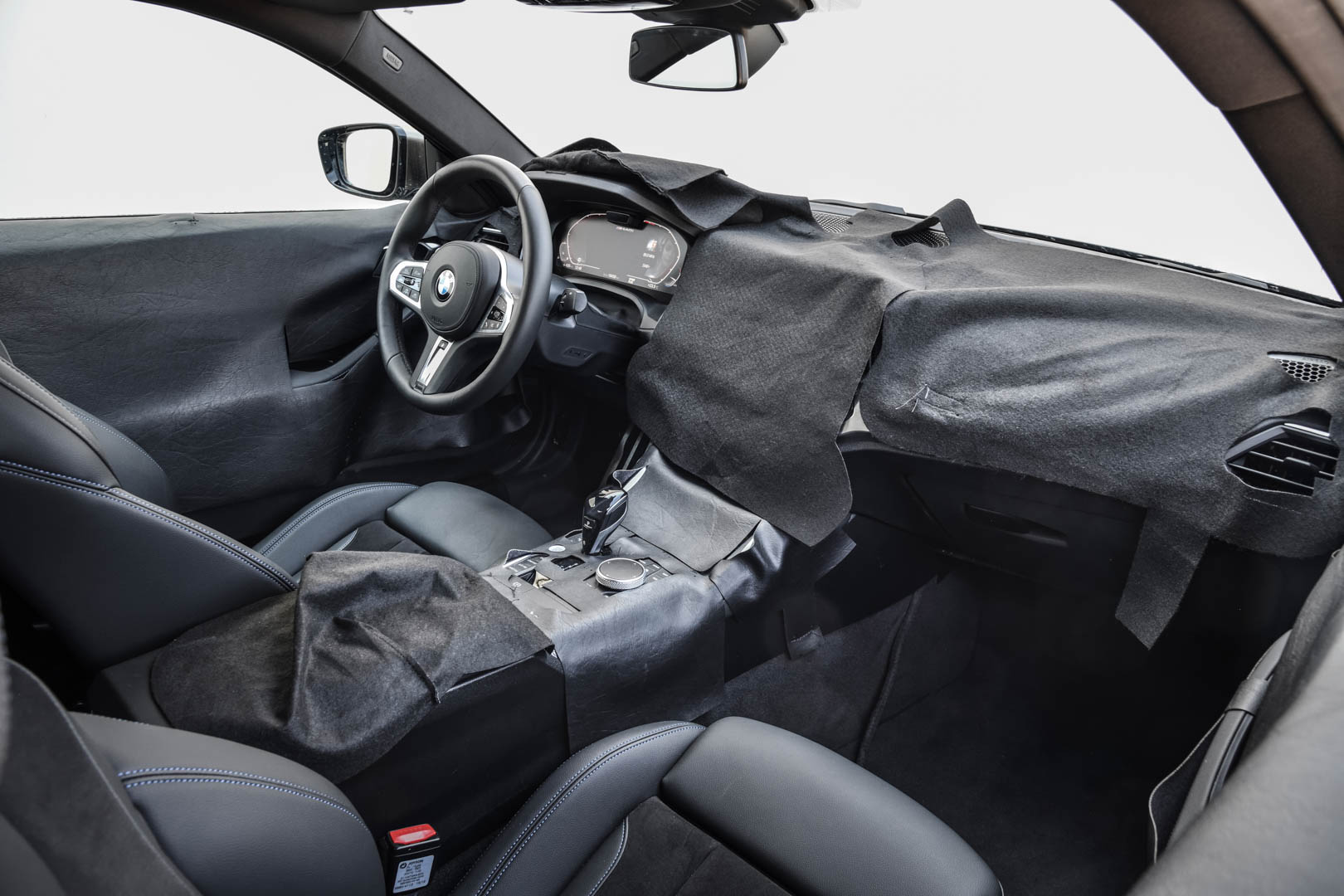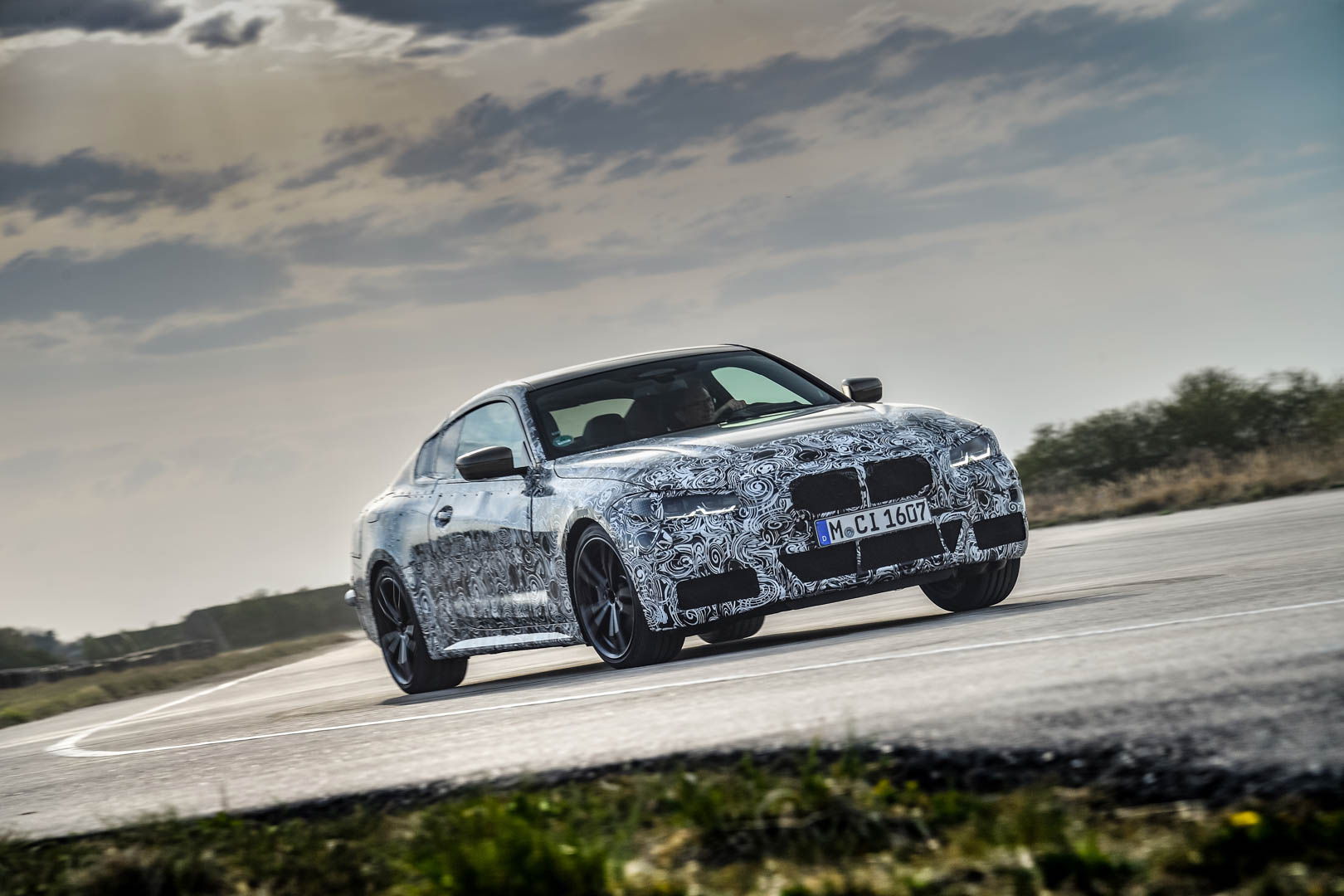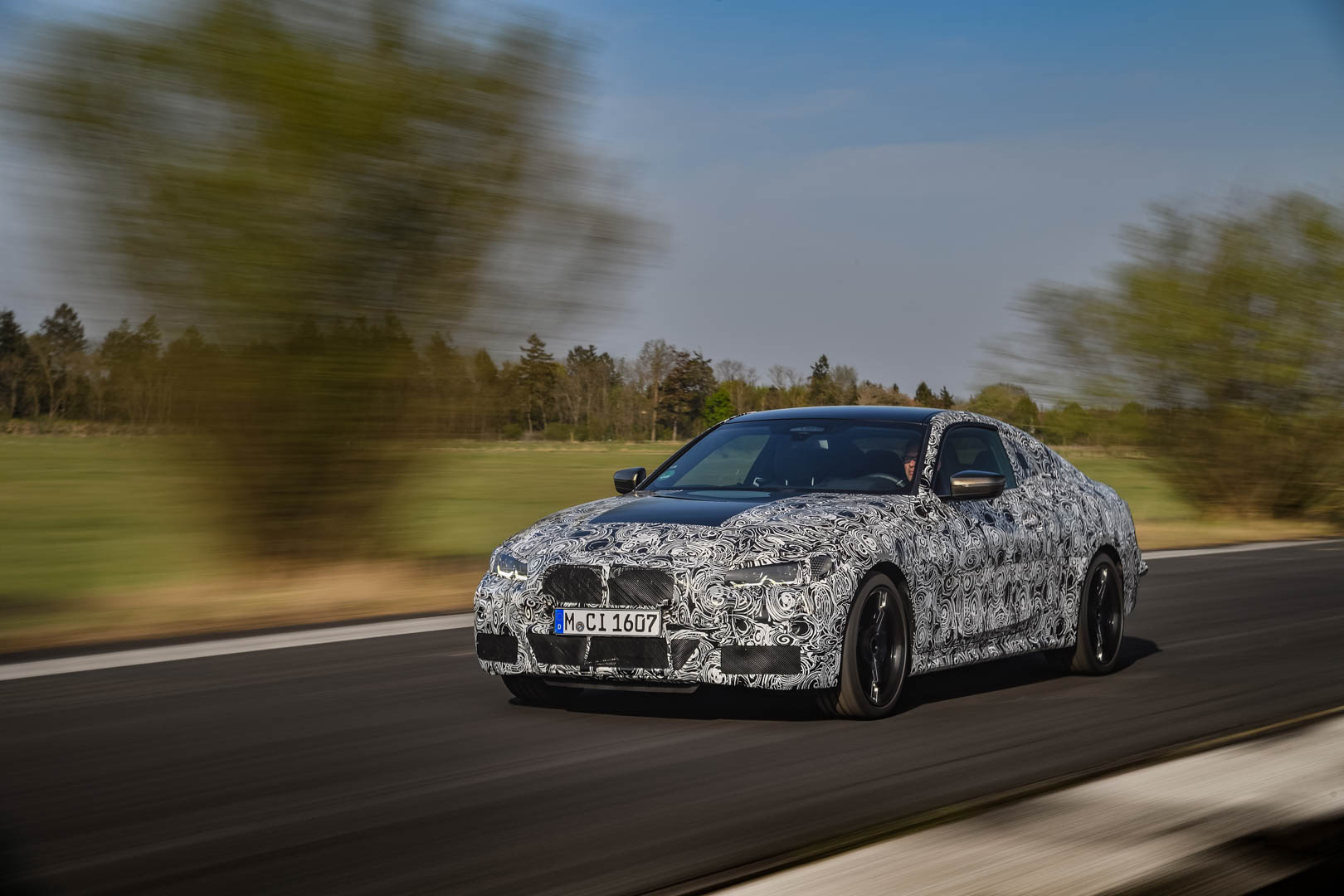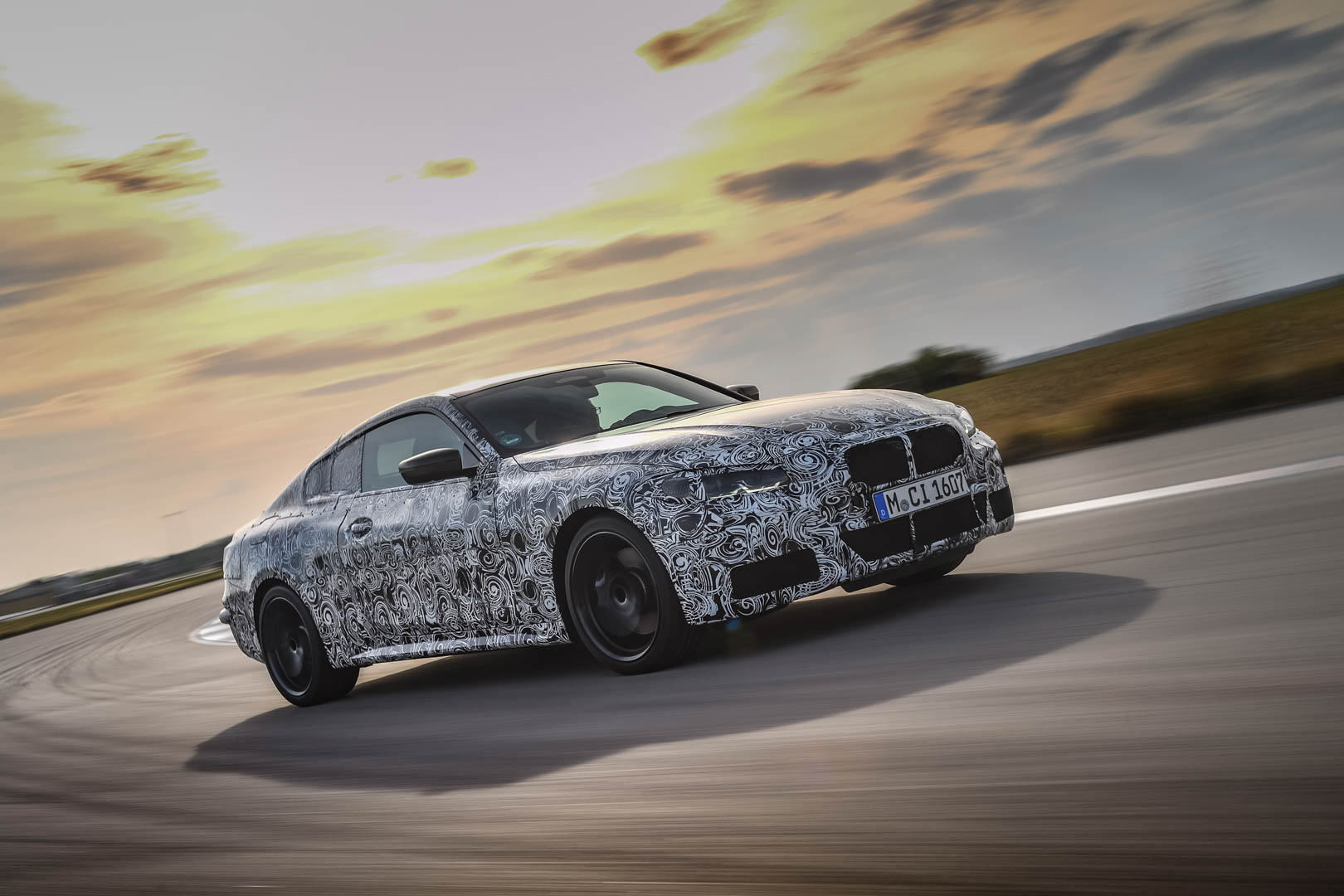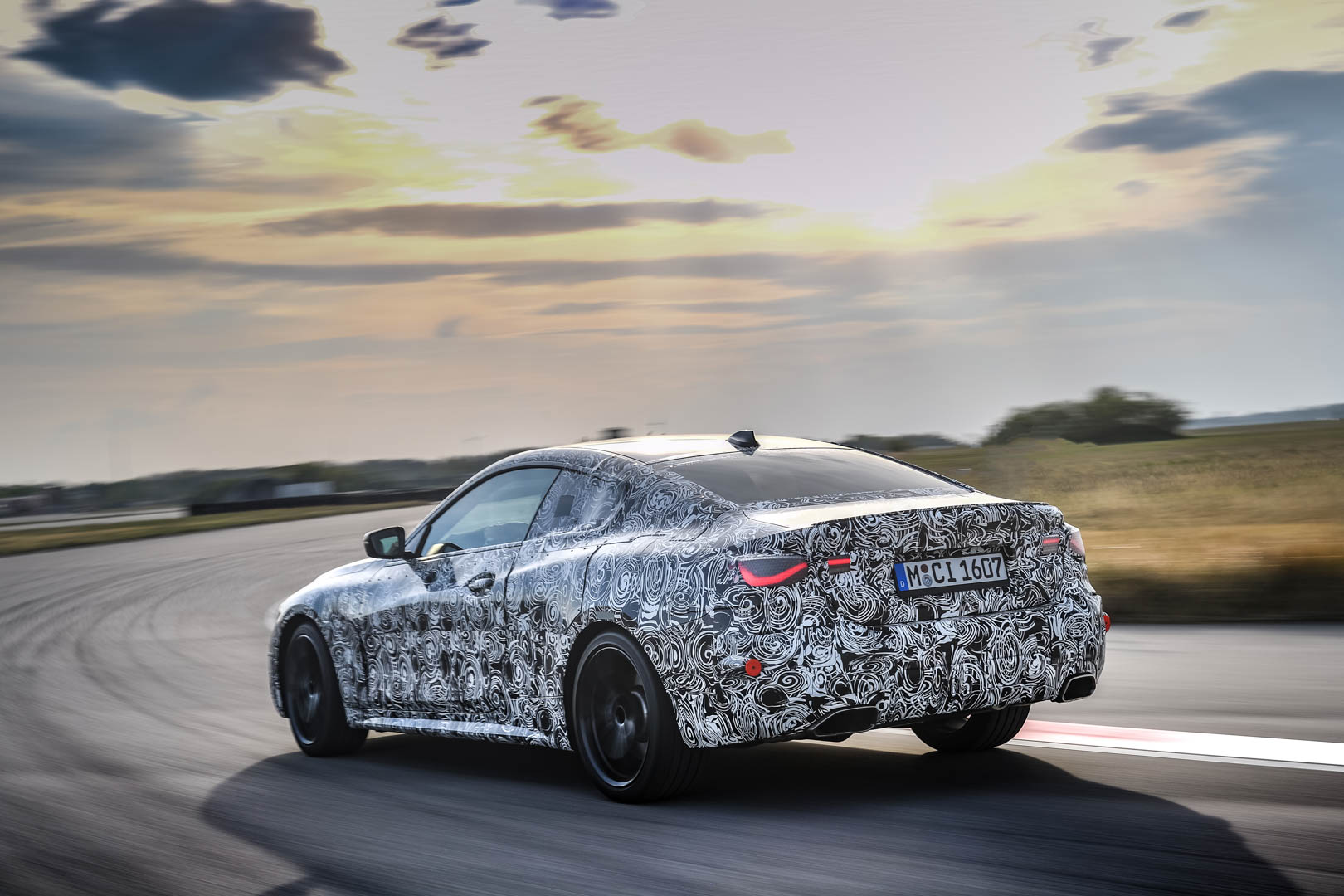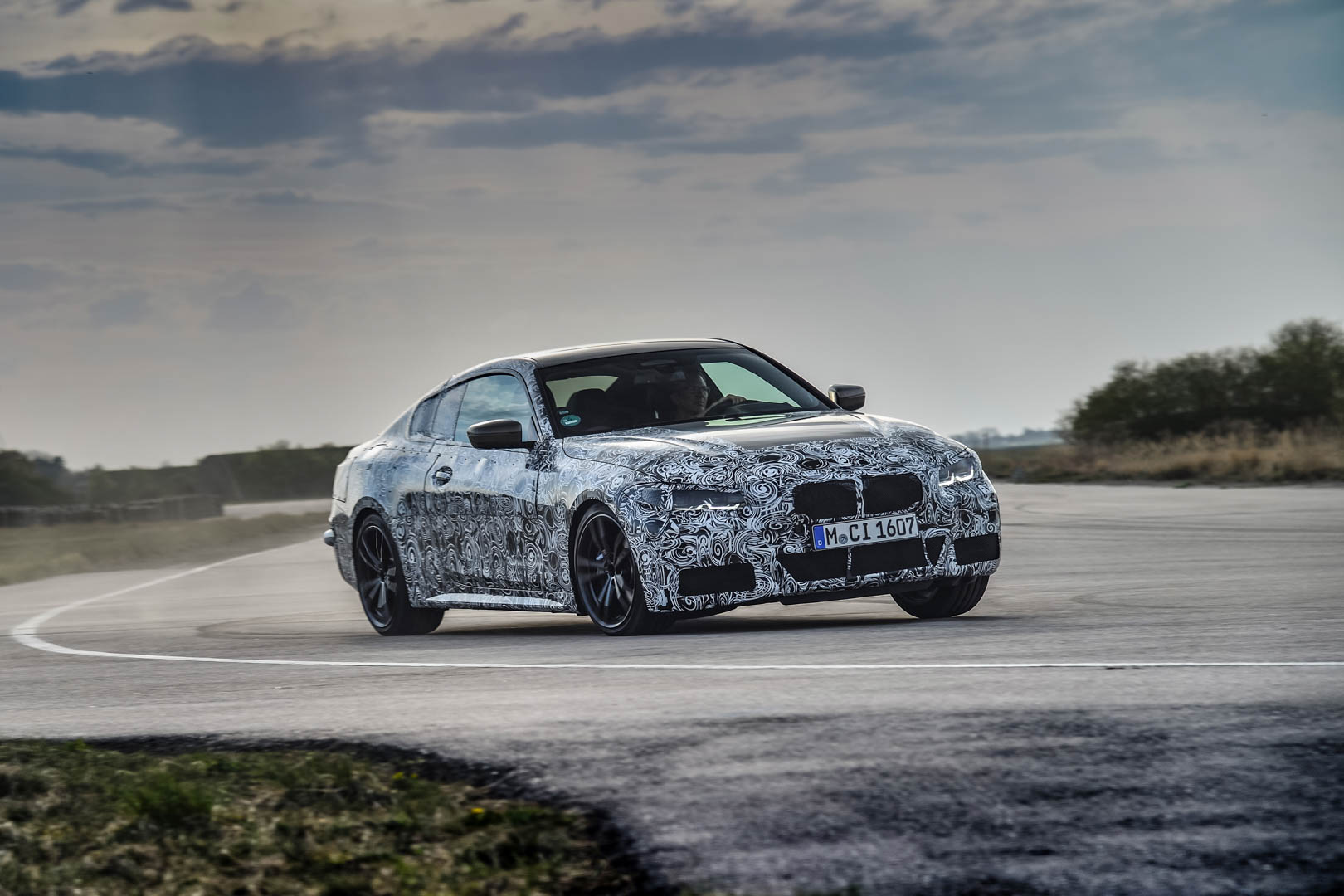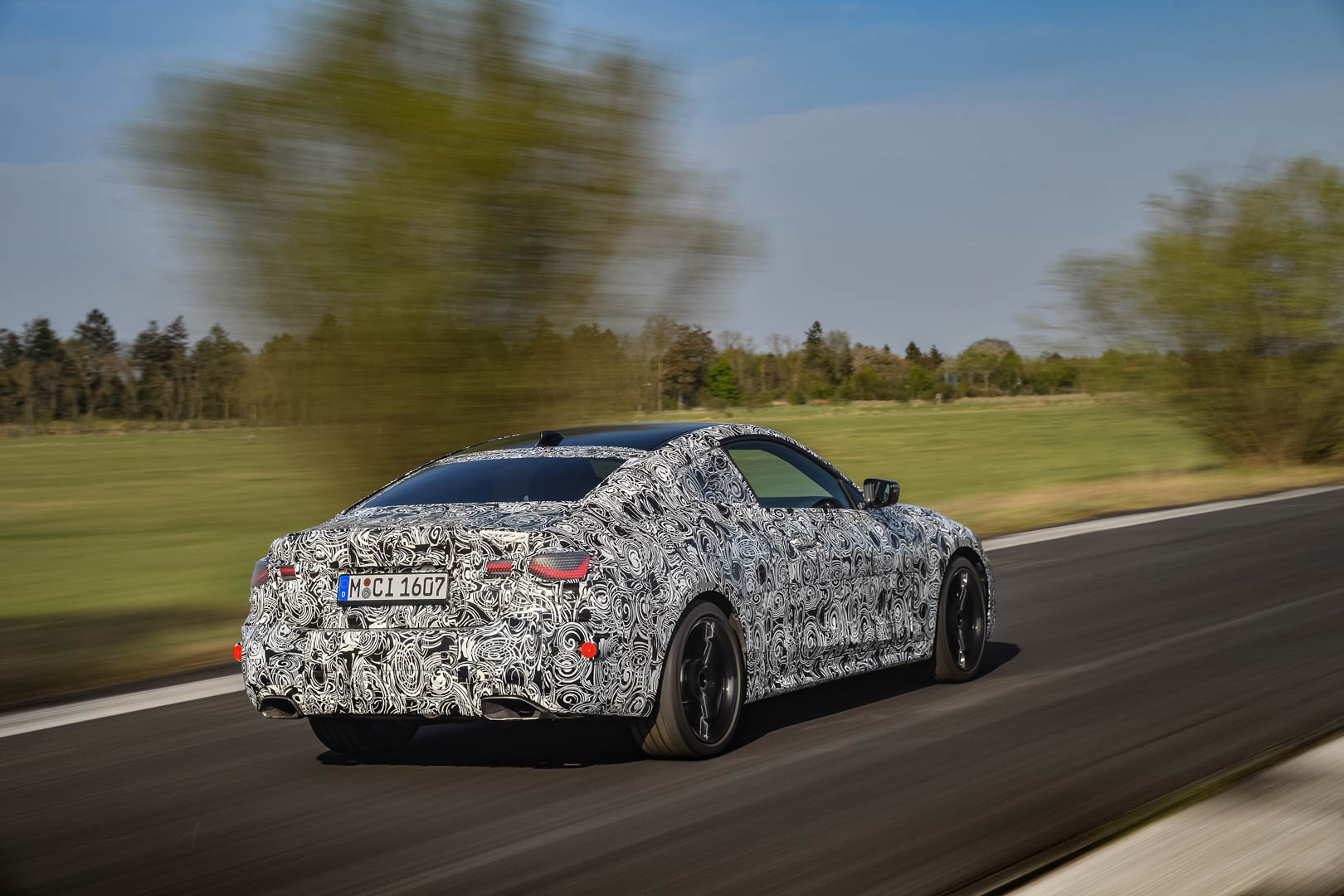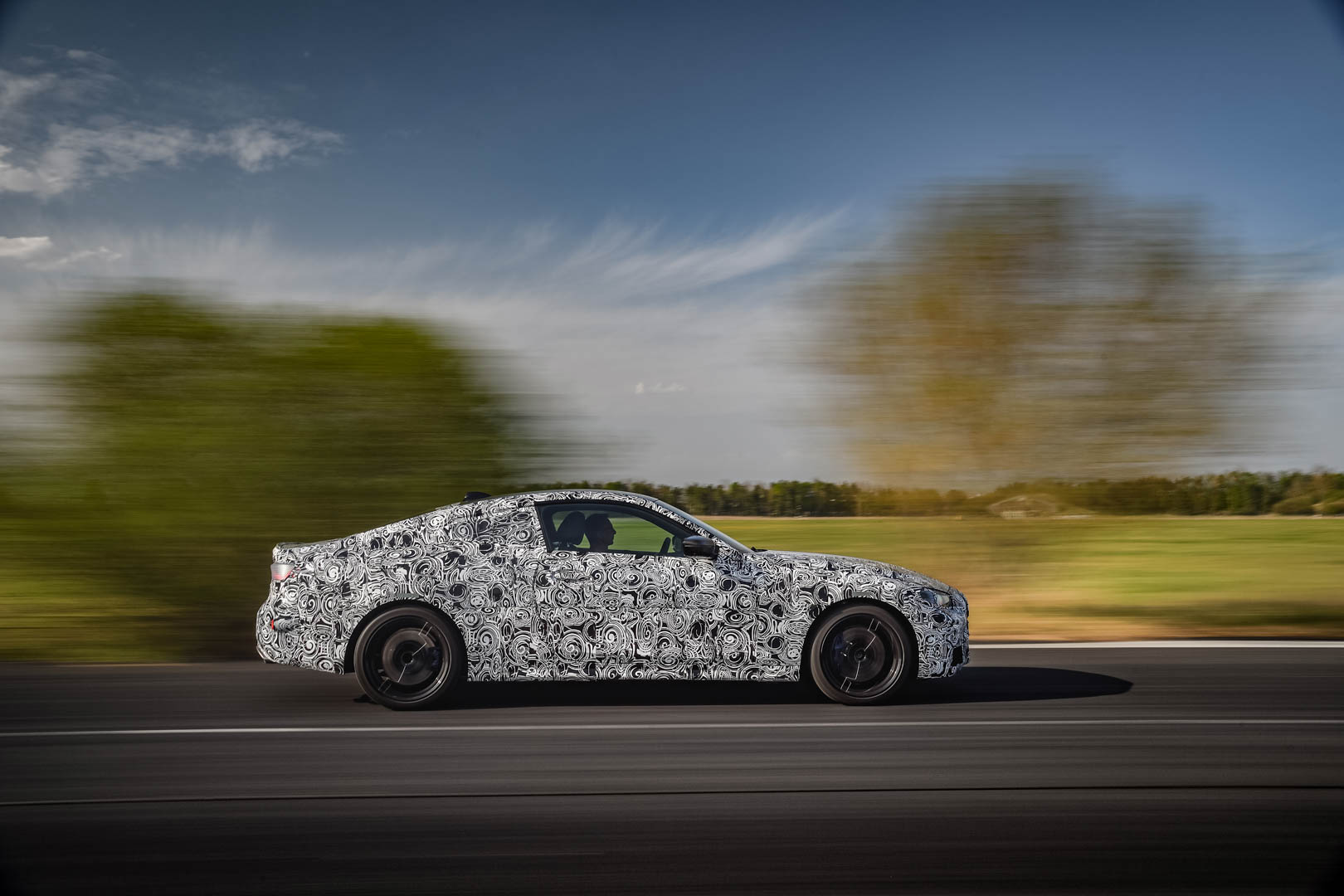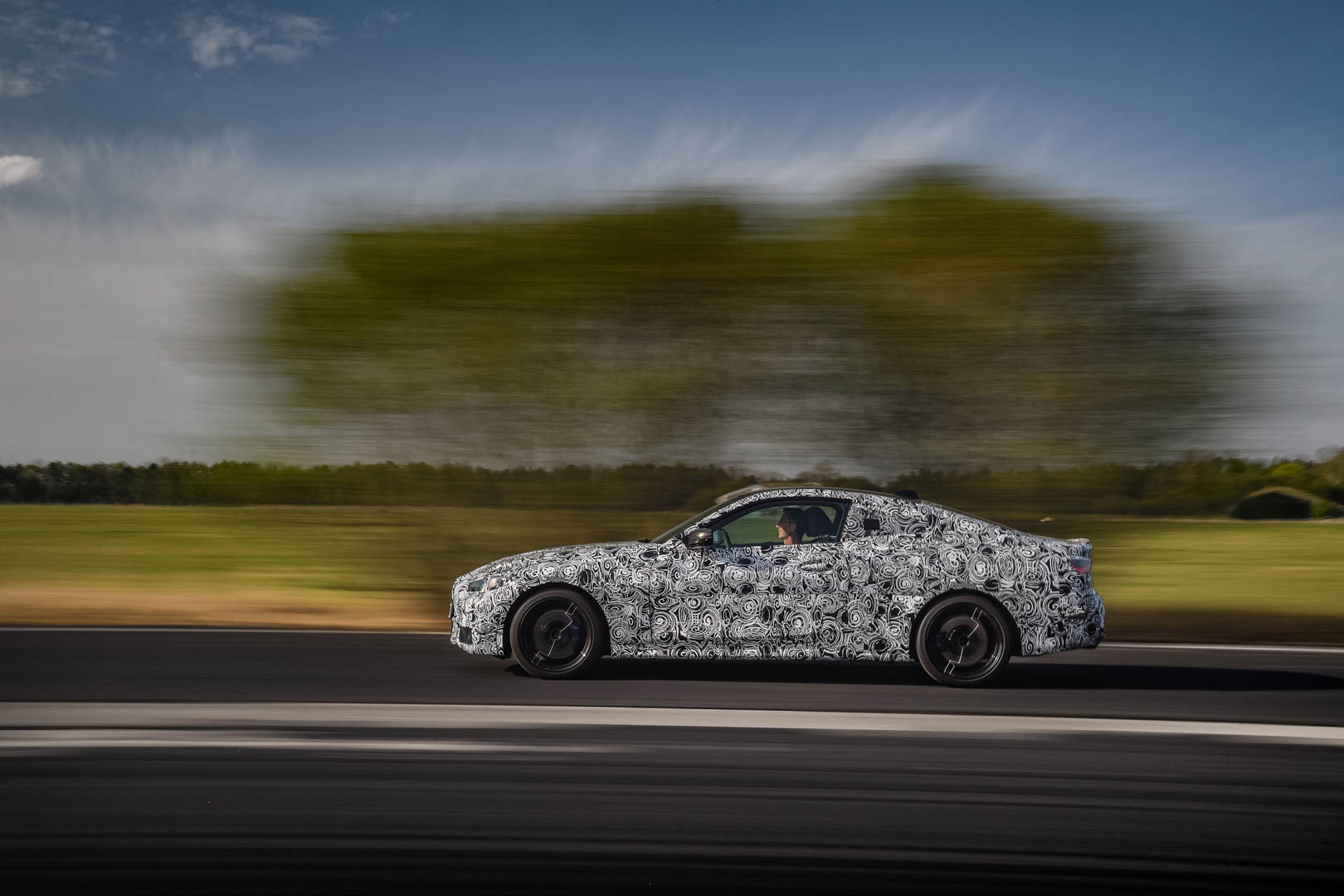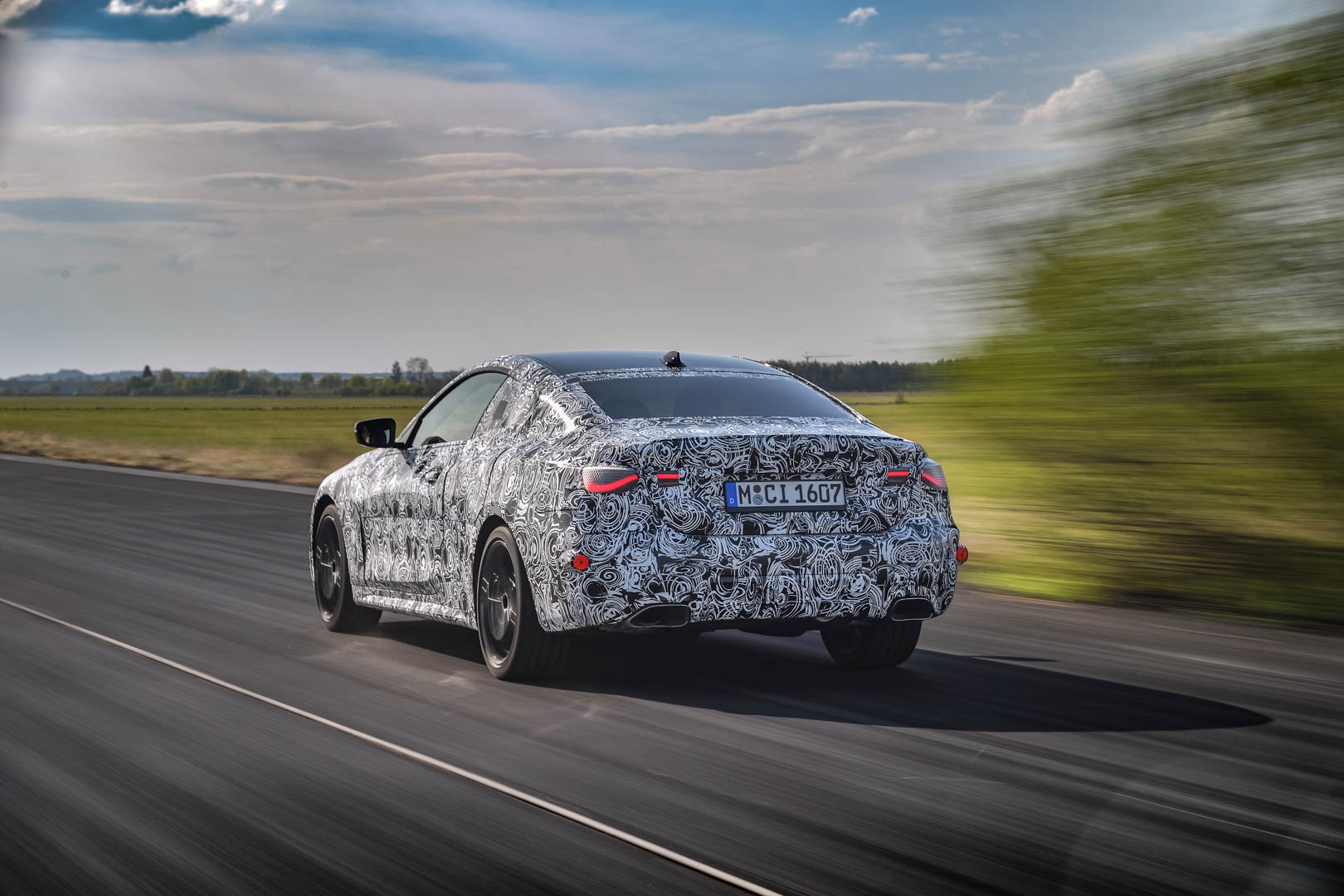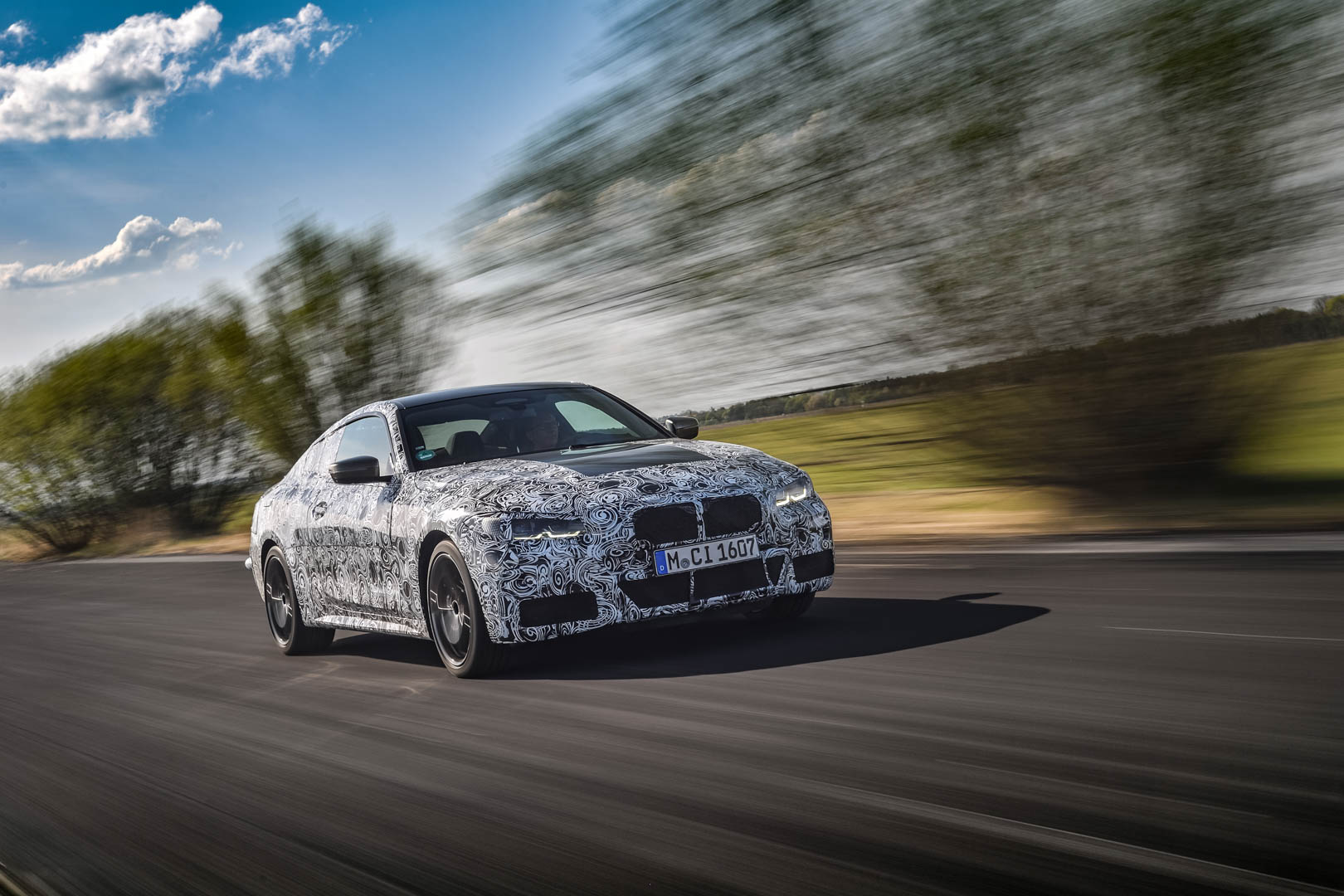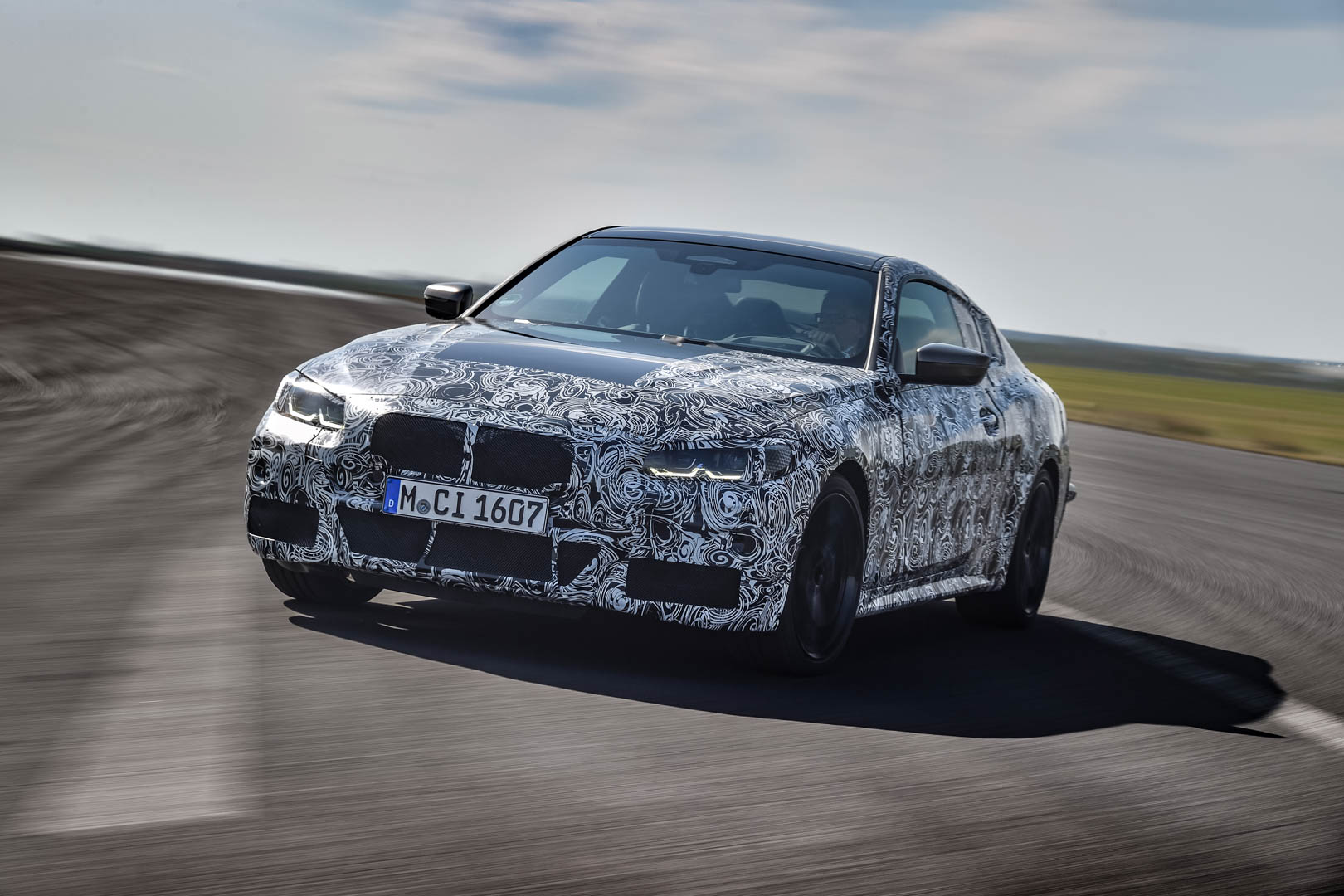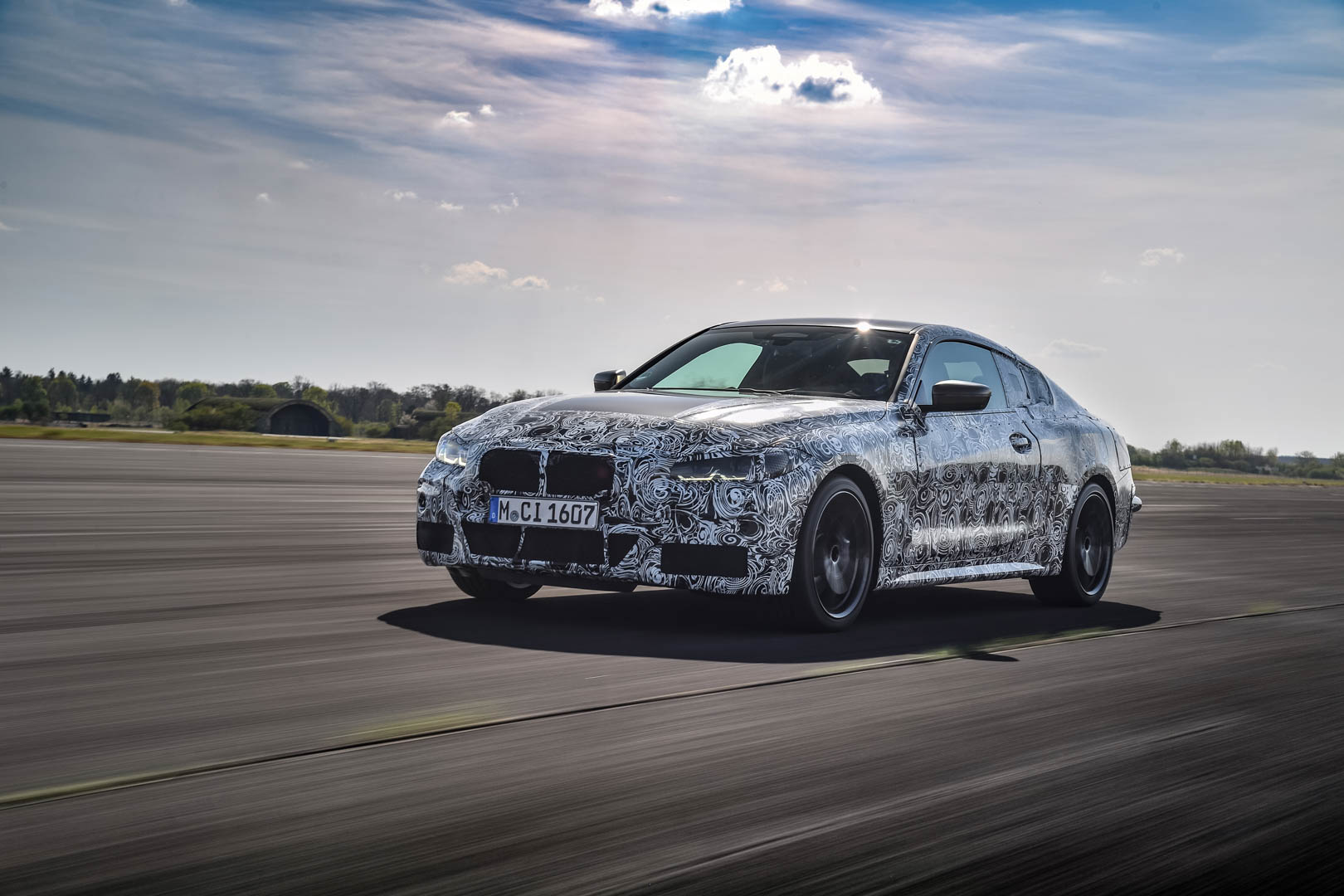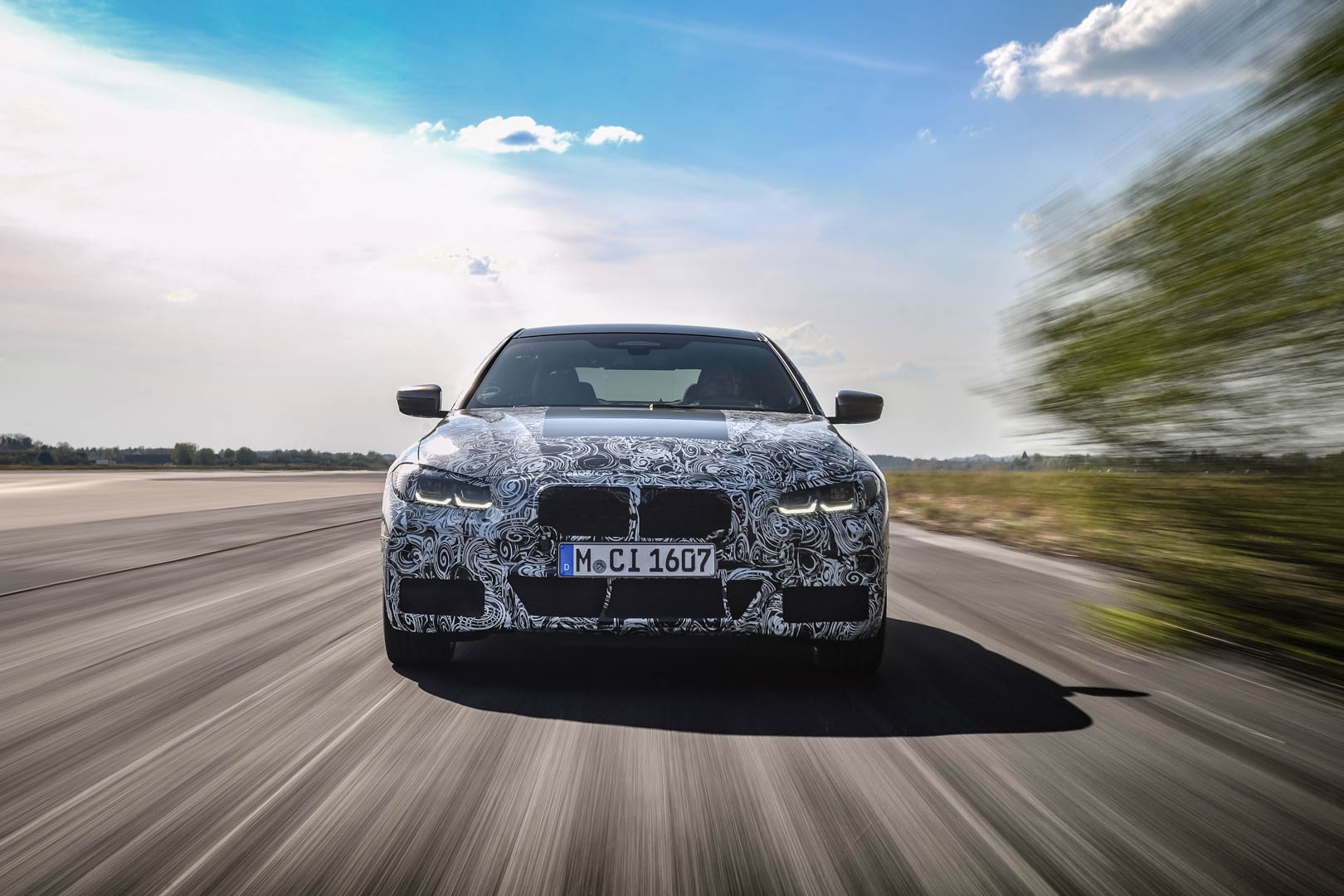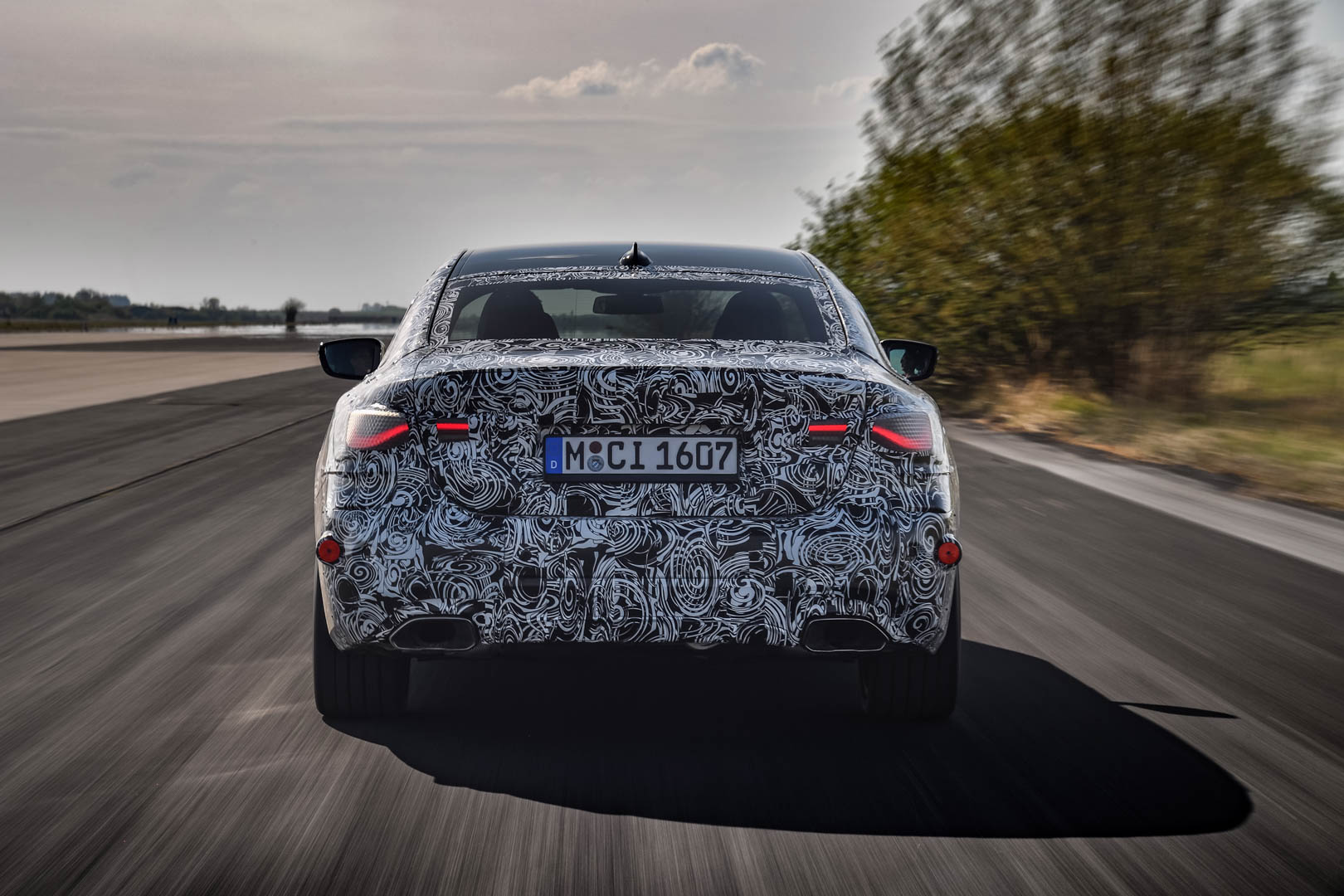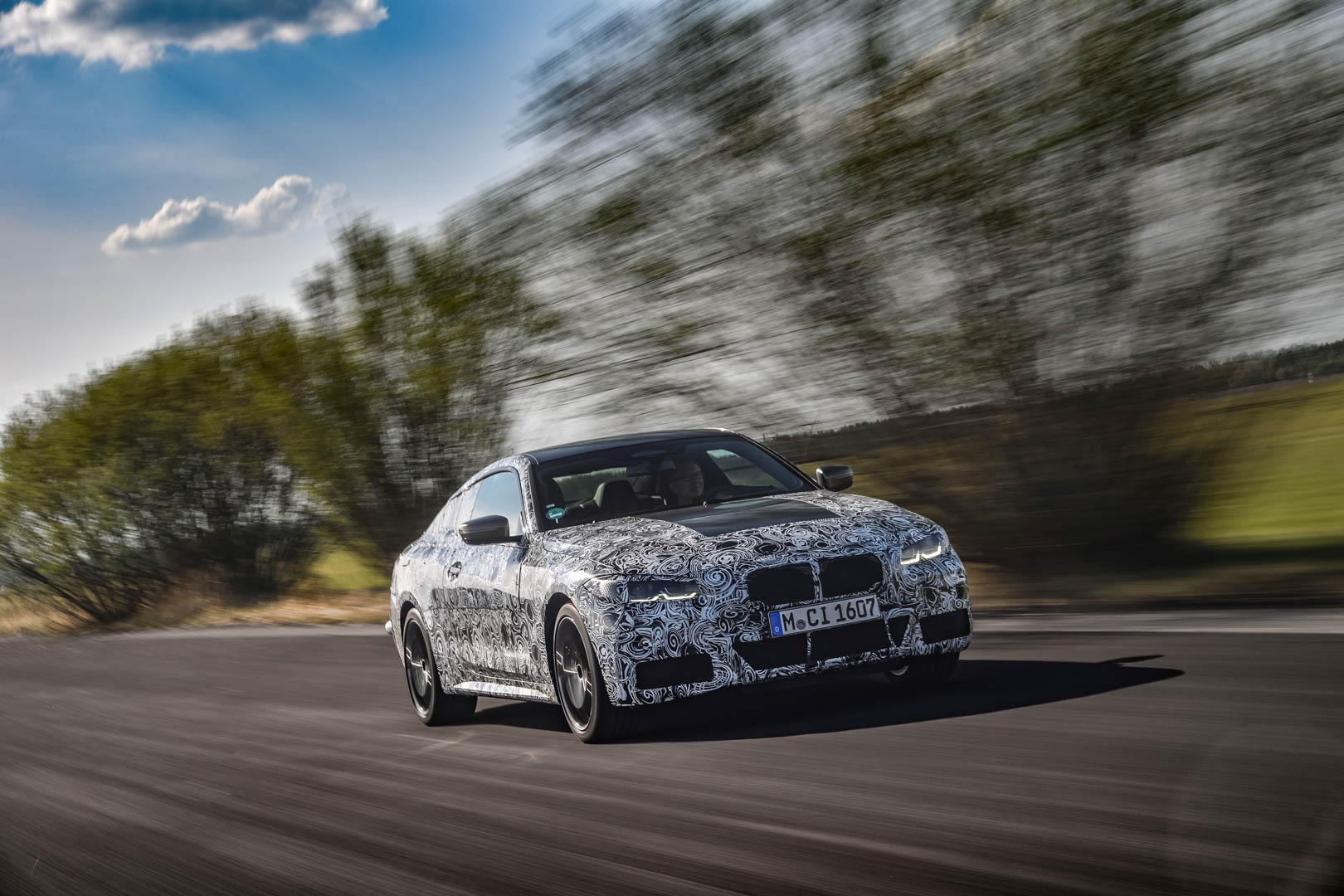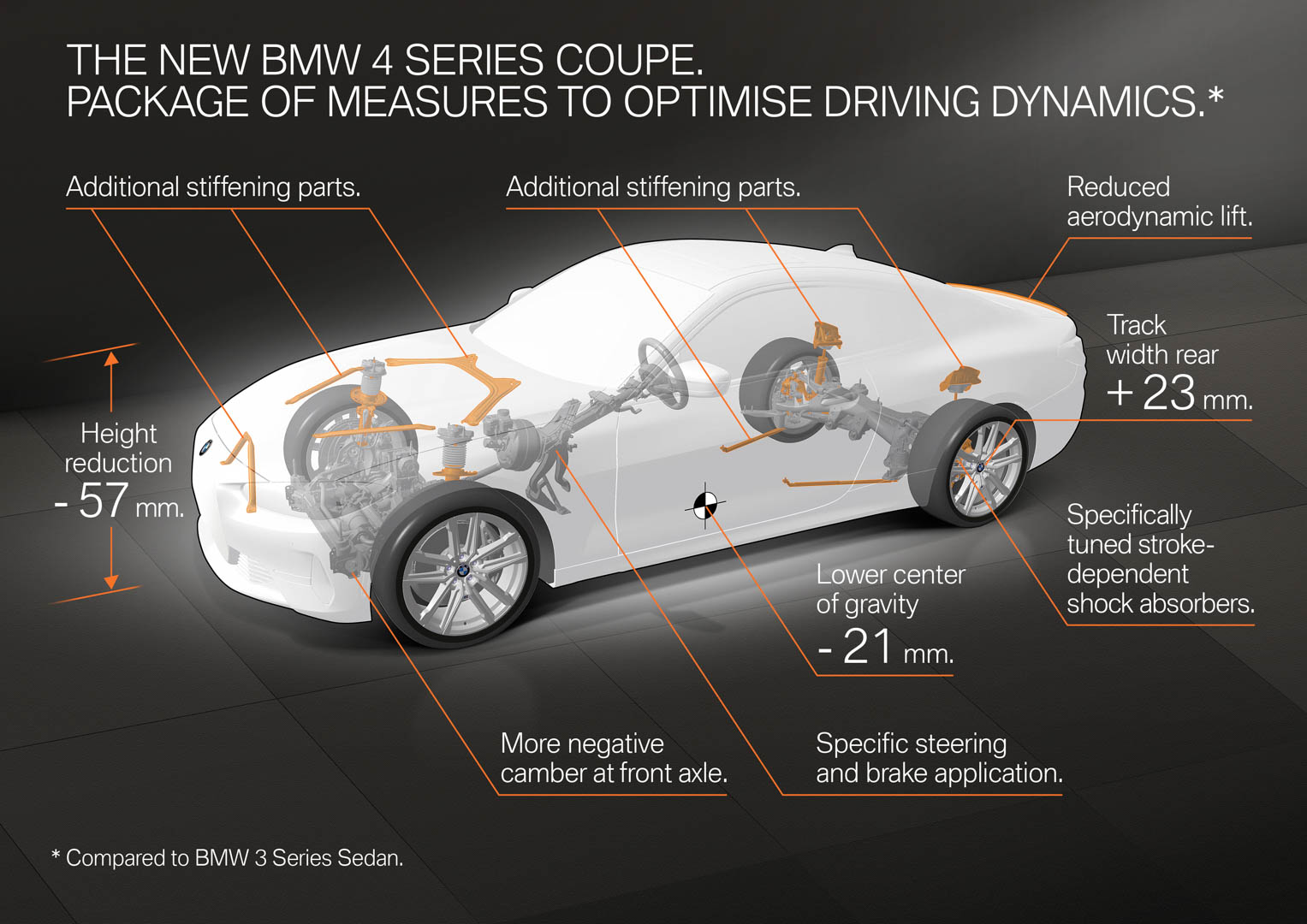Most of the media reports devoted to the new 2021 BMW 4 Series Coupe thus far have focused on its design. But now, with the keys to several prototypes in our grasp, we have the chance to write a preliminary driving report on the new car.
We also get an idea of what the second generation of the midsize coupe has to offer besides a large kidney grille. After all, the most discussed aspect of the G22 4 Series has long since been answered: it will have a whole new kidney design, which will set it apart from the 3 Series much more clearly than before.
A New Powertrain
However, the controversial design is far from the only aspect of the new 2021 BMW 4 Series Coupe that distinguishes it from the 3 Series Sedan. Behind the confident front-end, still concealed below a layer of camouflage, lies a thoroughly reworked technical package.
The new powertrain has one or two extra delicacies to take the power to a new level – both objectively and subjectively. We took to the country roads around Garching to check out what the engineers have come up with and why, and to sample how the overall package feels behind the wheel.
“The Scalpel”
The team of chassis experts assembled by Jos van As set out some lofty goals for the new 4 Series. The working title they gave the G22 4 Series is “The Scalpel.” Famed for its sharpness but above all its surgical precision, a scalpel embodies the engineers’ mission statement for the BMW 4 Series Coupe – a car born to execute the commands of a skilled driver with the pinpoint fidelity of a scalpel in the hand of an experienced surgeon.
Turning this ideal end-point into reality required some concerted arm-twisting behind the scenes at BMW (dynamic excellence of this grade does not come cheap). Luckily for the driving dynamics engineers, subline manager David Ferrofino – whose sphere of responsibility includes all 4 Series derivatives – managed to convincingly sell his case.
The green light was duly granted for myriad technical differentiators which would elevate the G22 4 Series to an even higher level than the latest 3 Series. The biggest and most important contributor here was body rigidity, bolstered by an array of additional bracing elements clubbing together into an effective shear panel at the front end.
As the graphic shows, the stiffer body is only the start of the story. With a significantly wider track at the driven rear axle, greater negative camber at the front axle and specific tuning for the dampers and steering, the chassis engineers tweaked and refined anything that could make a difference.
The coupe also gave them certain physical advantages to work with, sitting almost six centimeters lower to the road and with a 21-millimeter-lower centre of gravity than the 3 Series Sedan.
In order to counteract the extra weight of the additional stiffening elements and maintain optimal 50/50 weight distribution, the BMW 4 Series Coupe brings lightweight thinking to the front-end structure. The bonnet, front wings and doors are made entirely from aluminum, unlike on the 3 Series. And in other areas of the car, multi-phase and higher-strength steels give the body even greater rigidity without increasing weight by any noticeable degree.
The Driving Experience
However, we haven’t come to Garching to analyze how this honed overall package performs on paper – we want to see how it drives on the road. First up is the rear-driven G22 BMW 430i with conventional M Sport suspension (sans adaptive dampers) and the optional rear-axle locking differential.
The four-cylinder engine familiar from the G20 330i also represents a compelling proposition in the 4 Series, restating its ability to rustle up torque far quicker than before. But we don’t have time to dwell on such details, not when there’s the rear of a Z4 M40i pace car to stick to!
Providing our playground for the test drives are the rural roads of Bavaria’s hop-growing backcountry, currently free of traffic, of course. Sweeping, high-speed corners share this neck of the woods with tight and twisty sections through forests. But at least as important for the chassis engineers is the fluctuating nature of the road surface, which oscillates between textbook-smooth one moment and a blistered, pothole-infested trial for the springs and dampers a few meters later.
After a handful of miles exploring the new BMW 4 Series at the limit or thereabouts, the primary lingering impression is how effortless it is to drive quickly. The coupe’s rigidity produces a direct response to every steering command not previously encountered in a sub-M model, the high-calibre genes of the 3 Series shining through repeatedly.
You wouldn’t say the second-generation coupe offers a night-and-day contrast to the driving experience in the 3 Series. But at the point where its sedan sibling slowly but surely pulls down the curtain, the 4 Series continues to sing a little while longer.
Since these dynamic gains have not only been achieved by dialing up the firmness of the suspension, a slice of the additional potential on offer is only revealed to the driver at very high cornering speeds. Where some cars use exaggerated hardness to create an impression of sportiness, the BMW 4 Series always retains the good manners of a 3 Series.
Lift-related dampers mean it doesn’t even need adaptive suspension to pull off the trick. And although the four-cylinder turbo engine pulls hard from middling revs, if not before, the new 430i suffers practically no traction issues. Credit here to the optional locking differential.
The Ultimate M Performance Model – BMW M440i
Swapping over to the BMW M440i, we realize there was a whole lot more sharpness still to be uncovered in the 4 Series experience. The flagship model in the new 4 Series range – for the time being at least – is not only fitted with the fundamentally rear-biased but still fully-variable all-wheel-drive system xDrive, it will also be the first petrol BMW to feature a 48V vehicle power supply when it is launched at the end of the year.
As a result, it is considerably heavier than the 430i, the extra weight accounted for by the larger engine, additional drive technology for the front wheels and just over 30 kg of bits and pieces for the 48V system.
With this supplementary cargo in mind, it would be reasonable to expect a perceptible drop-off in agility. And yet this is only something you might notice if you hopped straight into the M440i from the 430i; taken in isolation, the BMW M440i undoubtedly delivers the necessary fireworks.
The all-wheel-drive set-up familiar from the M340i has the feeling of traction-rich rear-wheel drive a – with Sport Plus mode and the DTC system’s Traction mode engaged. In a car with a lower centre of gravity and markedly stiffer body, it is an even more impressive to experience that rear-biased feeling.
You could never accuse the B58 six-cylinder in-line engine of suffering any real turbo lag, but some have still sought to find evidence for the prosecution. Well, thanks to the permanently available power of the 48V starter-generator, they’ll keep on searching.
It all adds up to a driving experience that blends the qualities of a sports car with those of a classical GT – to a compelling effect. Depending on your mood or the driving mode engaged, the 2021 BMW 4 Series will either encourage you to hustle it from corner to corner, or invite you to soak up the miles in unshakeable comfort.
Viewed in these terms, the new 2021 BMW 4 Series Coupe has even more to offer than a good scalpel. After all, the sharpness of the latter starts to noticeably wane after just a few cuts and it requires a new blade.
For those still interested most in the car’s design, the wait is almost over: the marketing people in Munich are poised to pull back the covers on the 3 Series’ sporty spin-off in early Summer, ahead of its market launch in the fourth quarter of the year.



